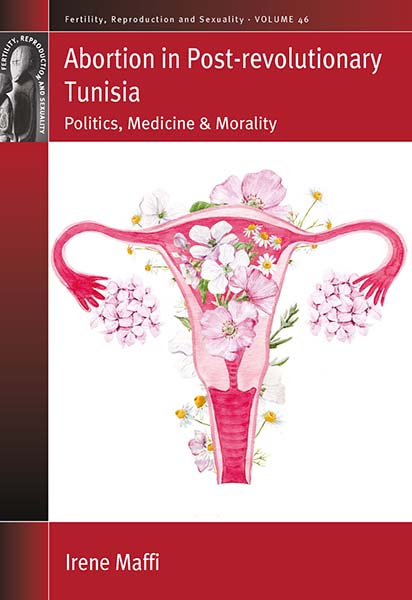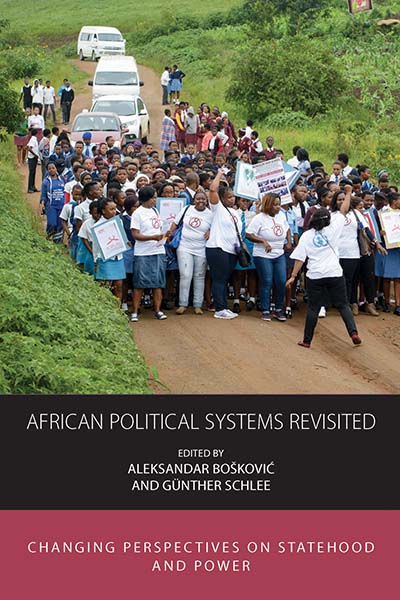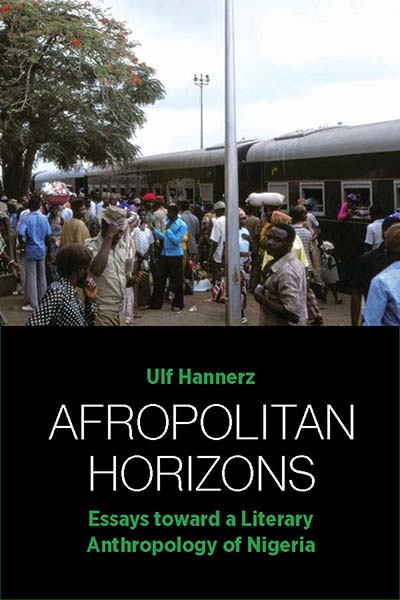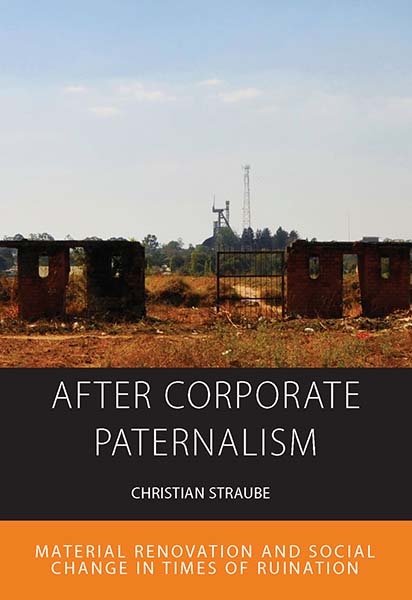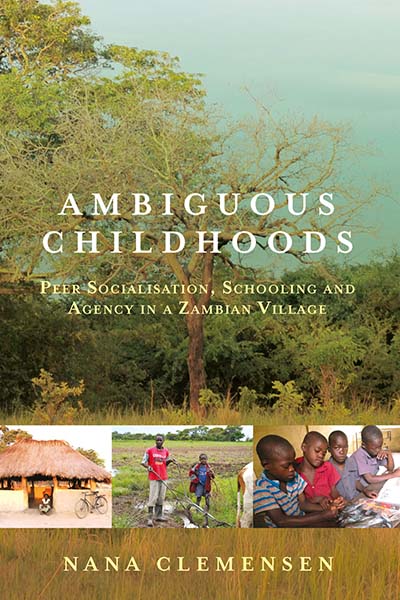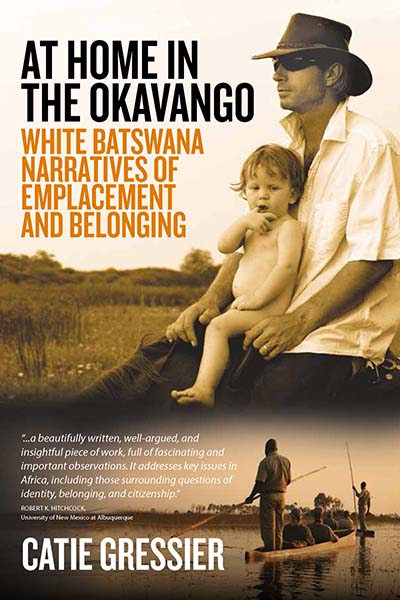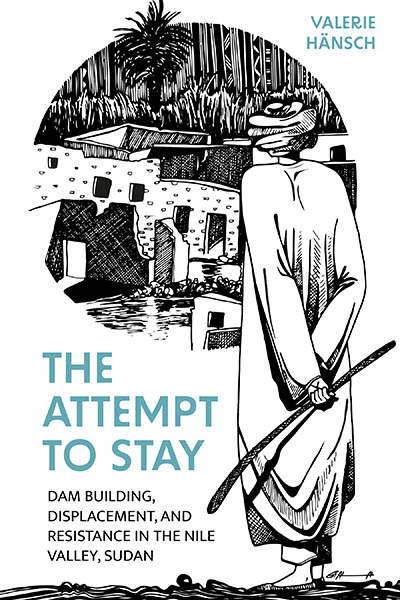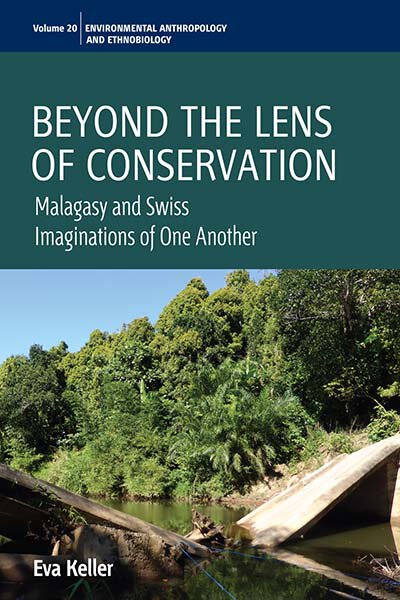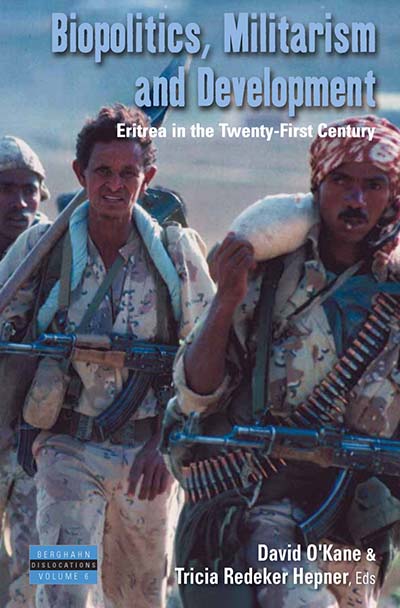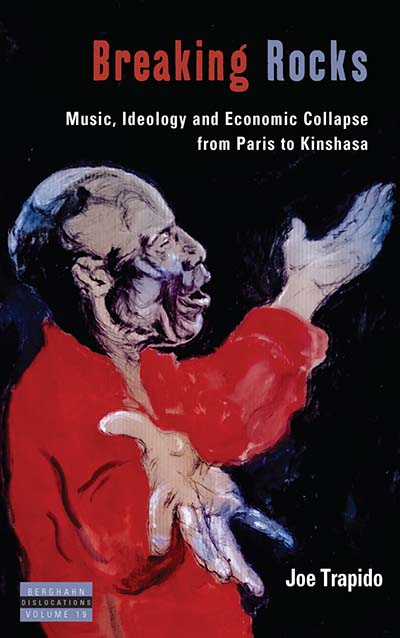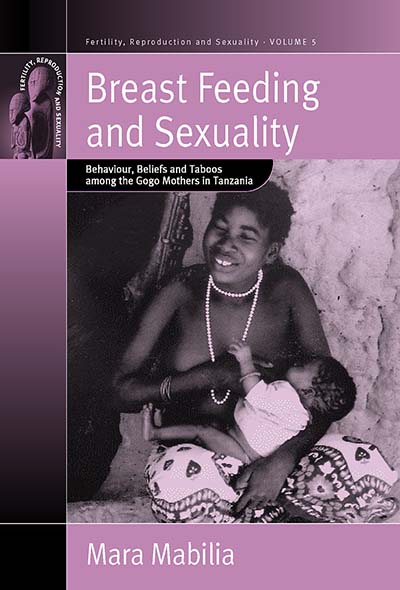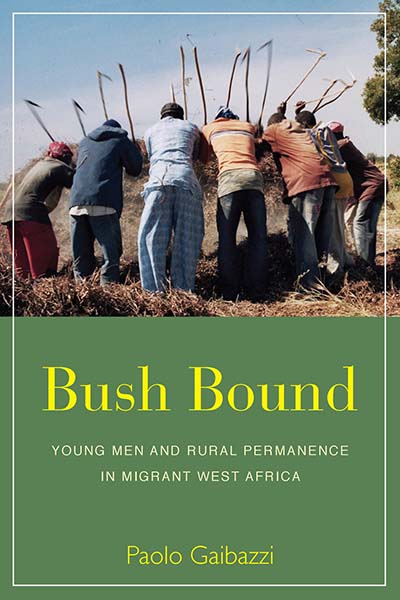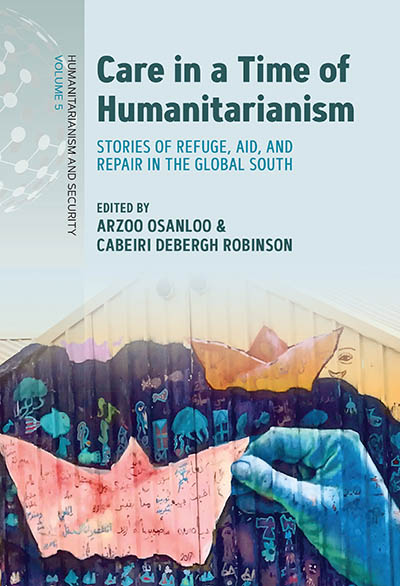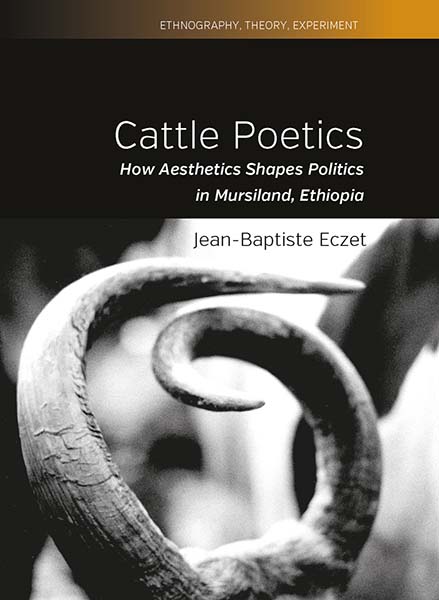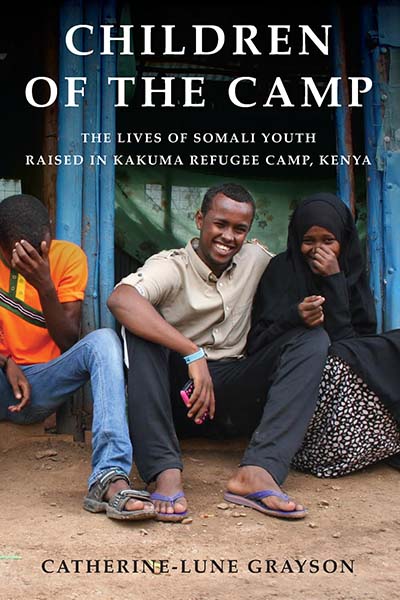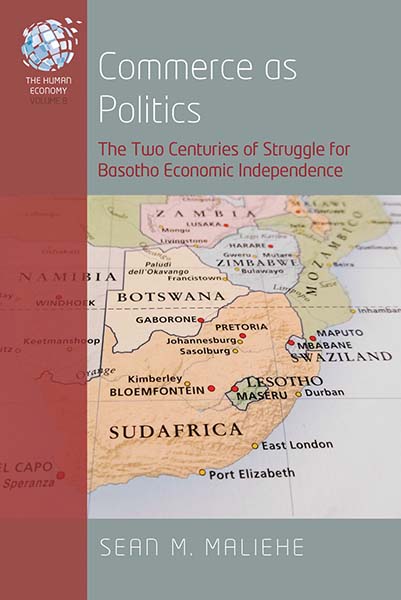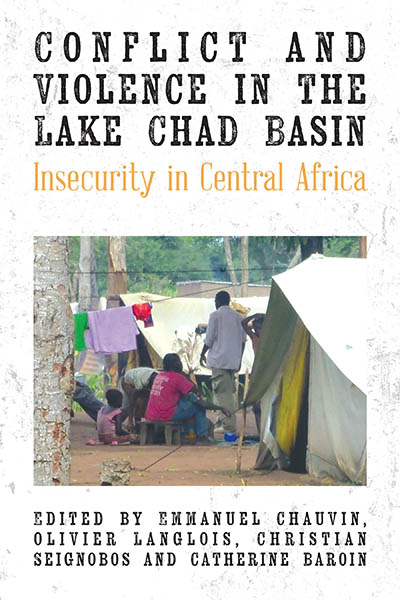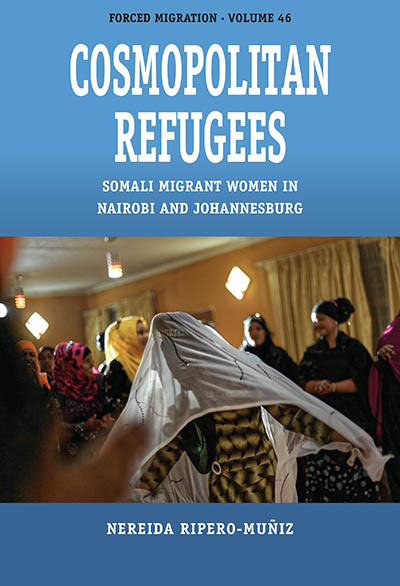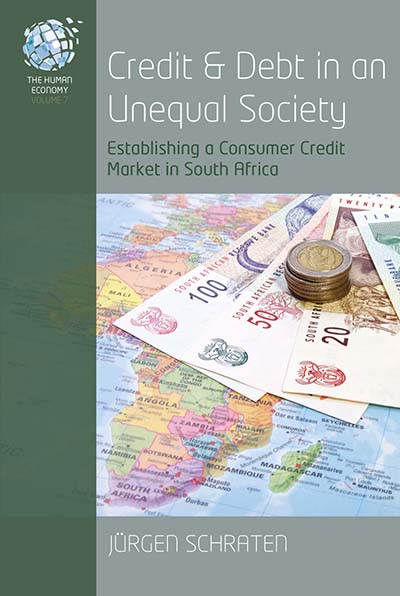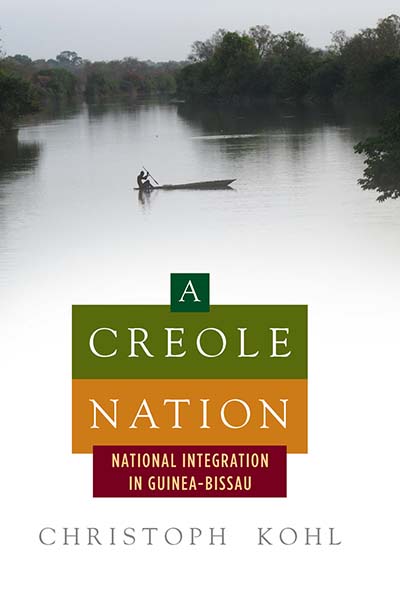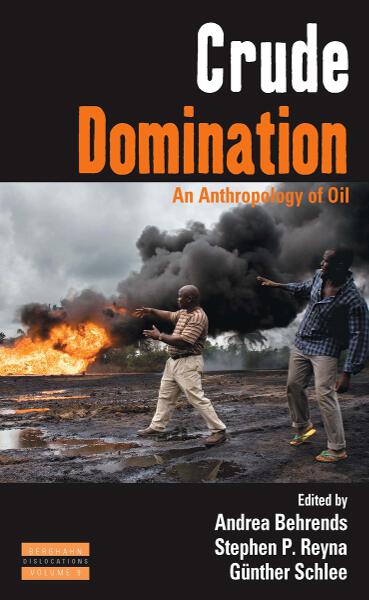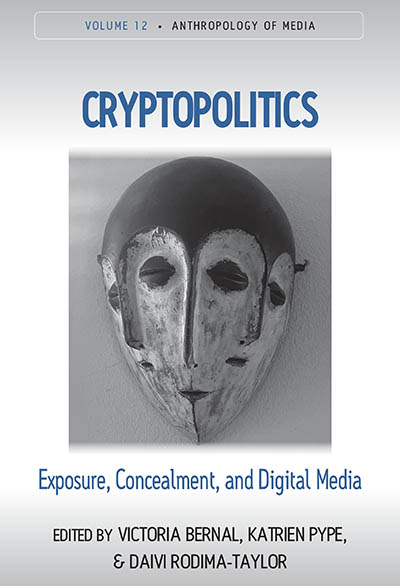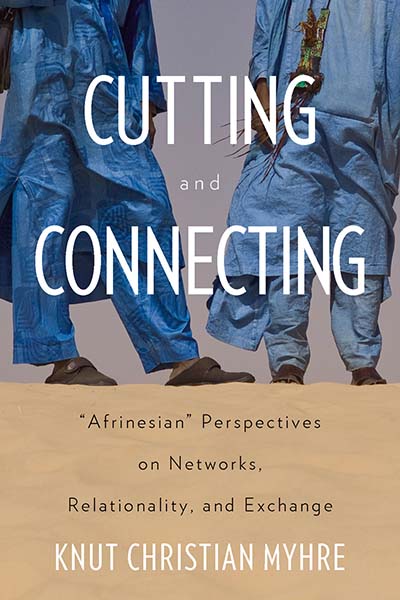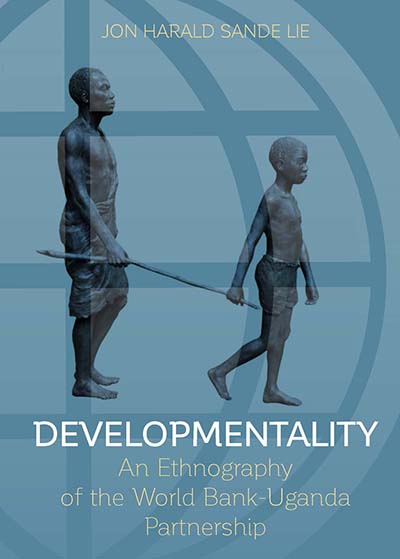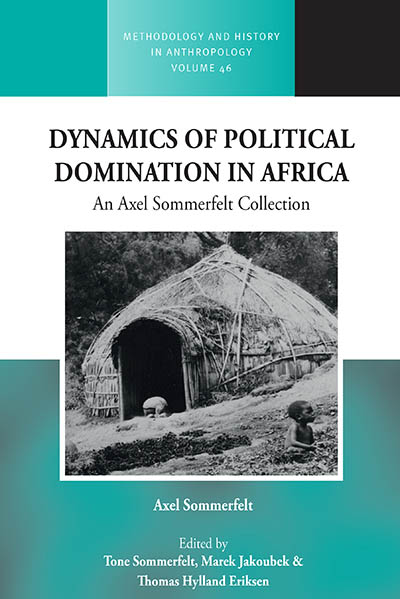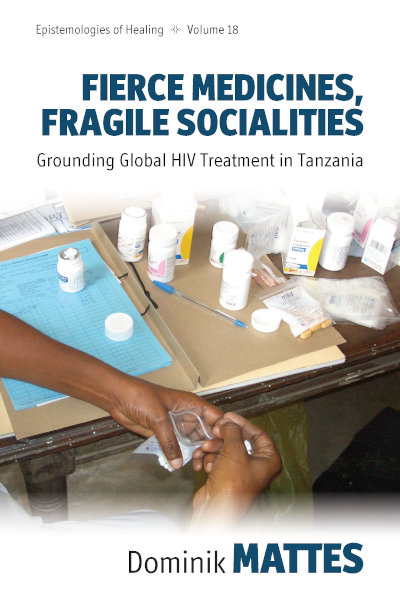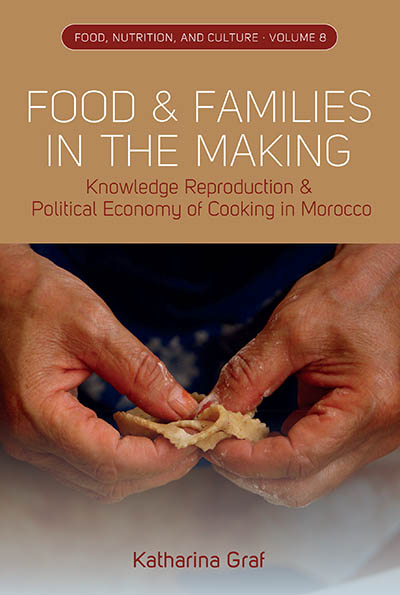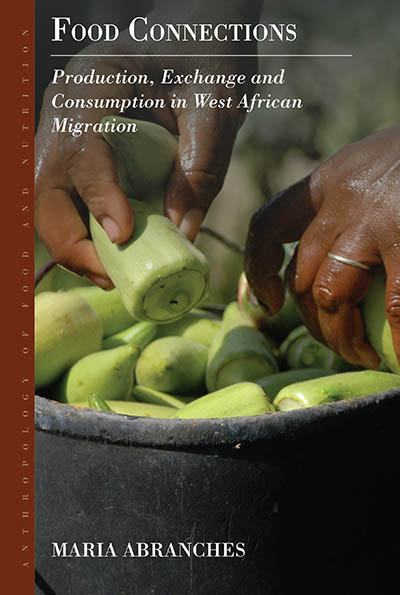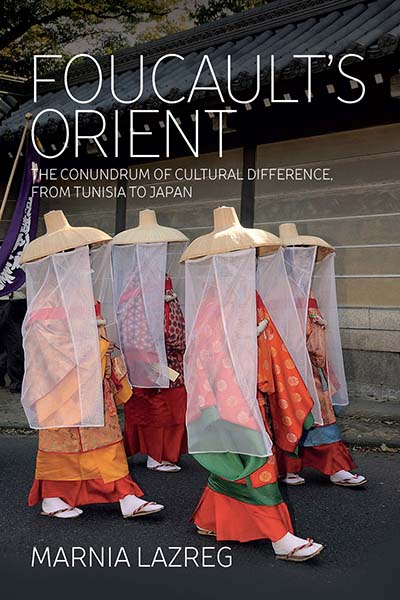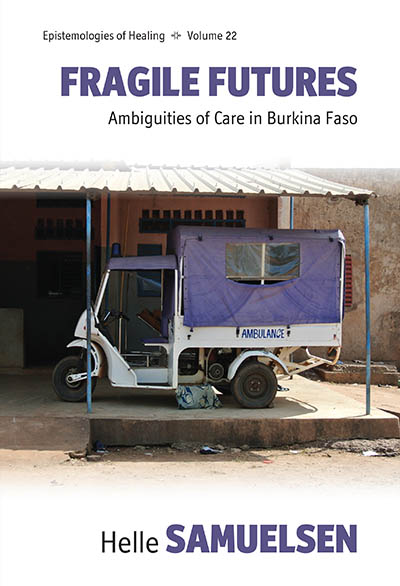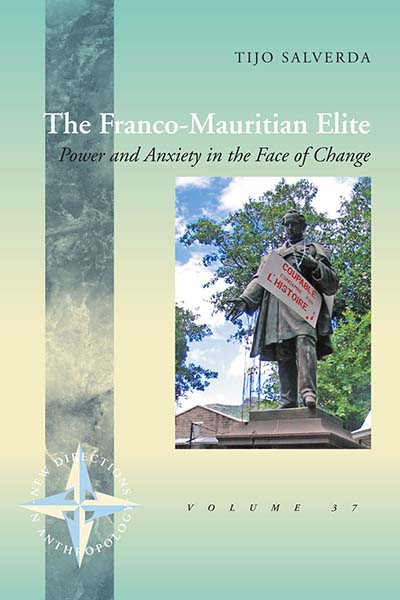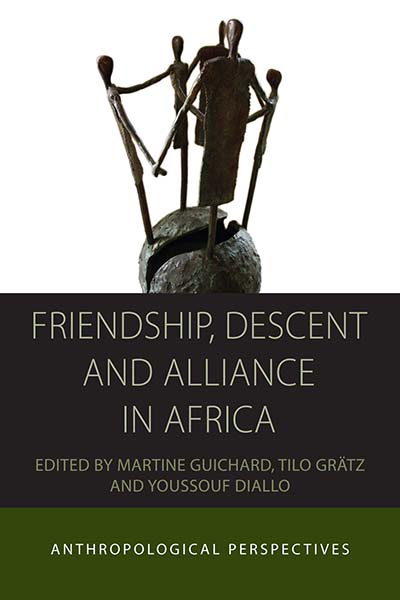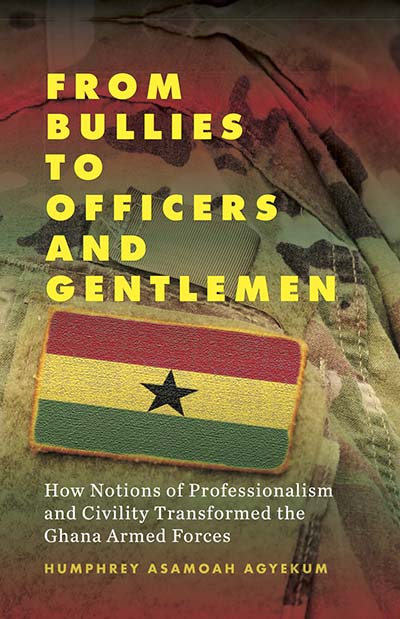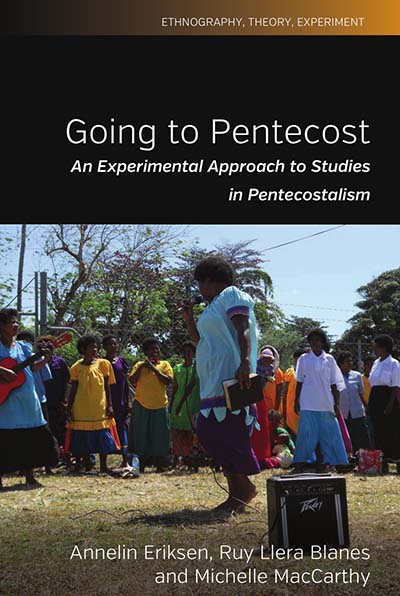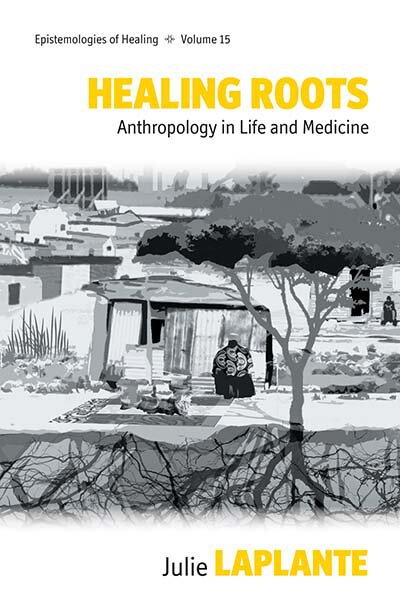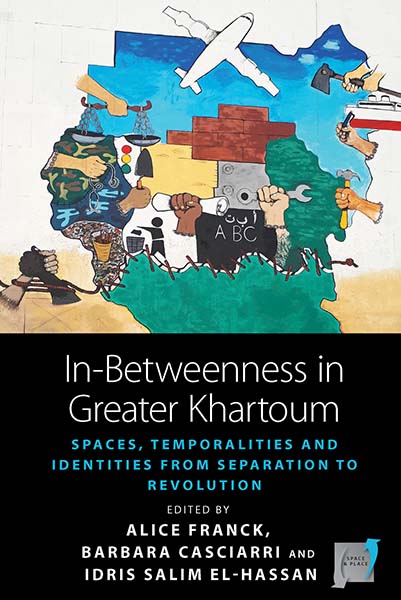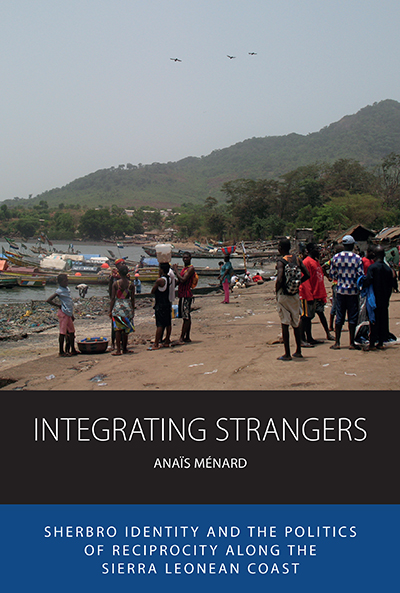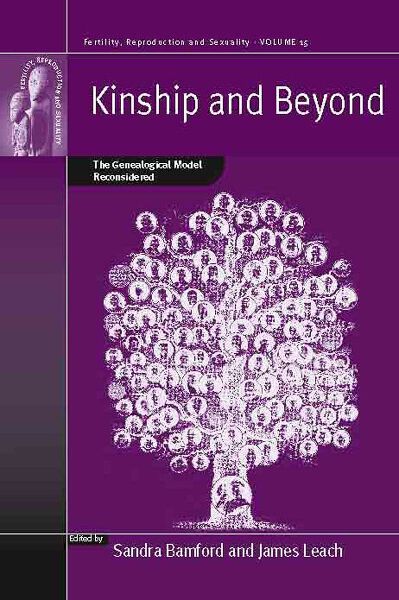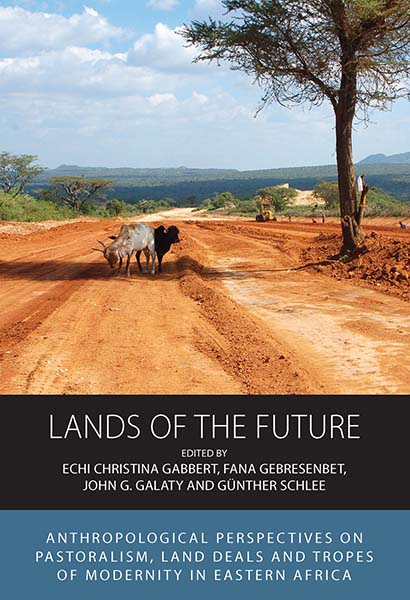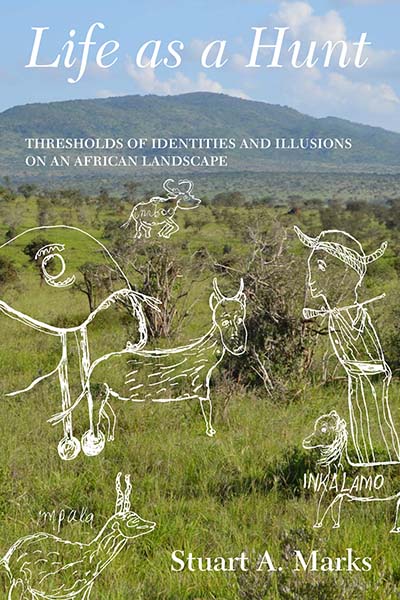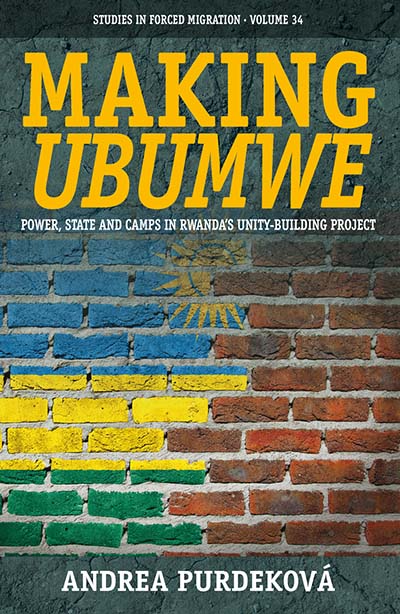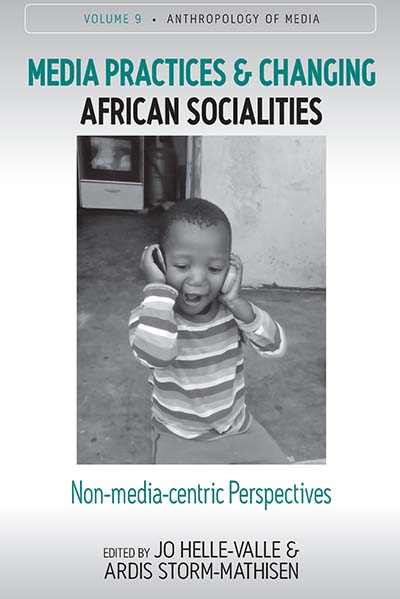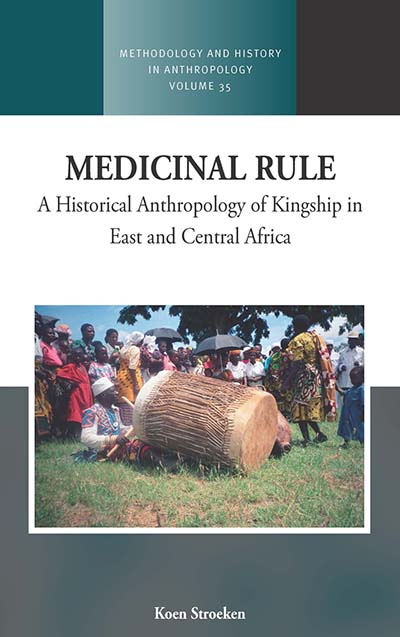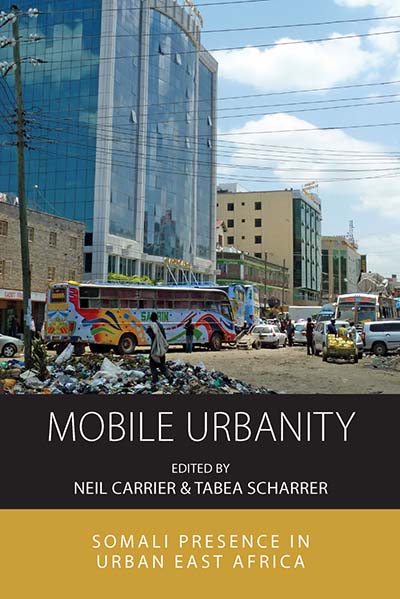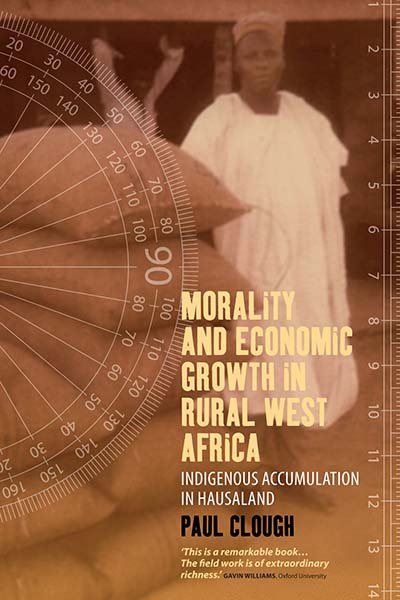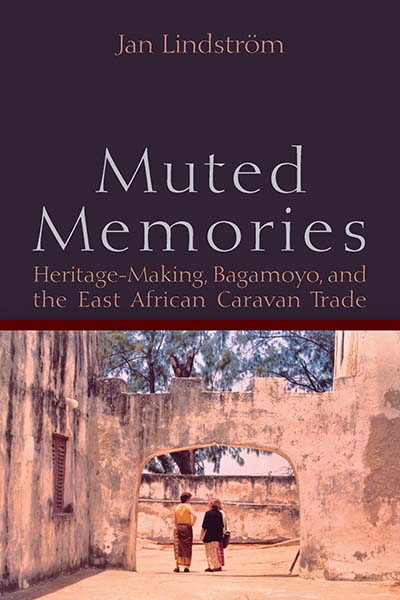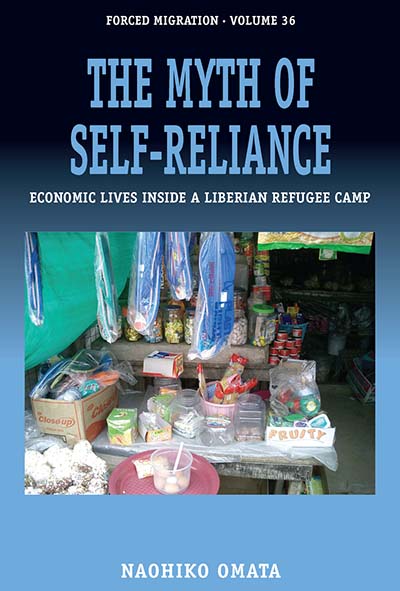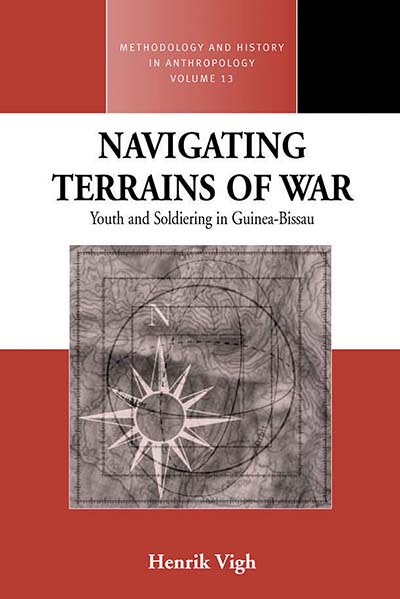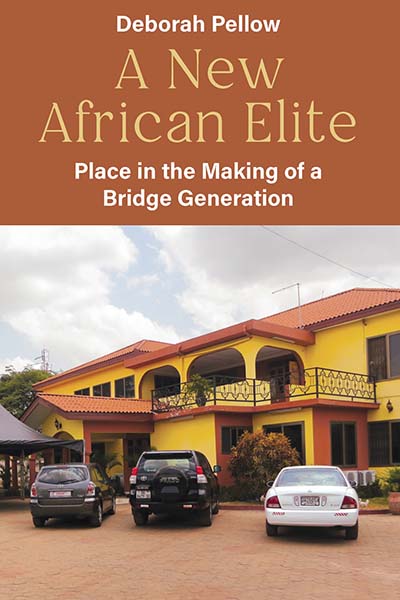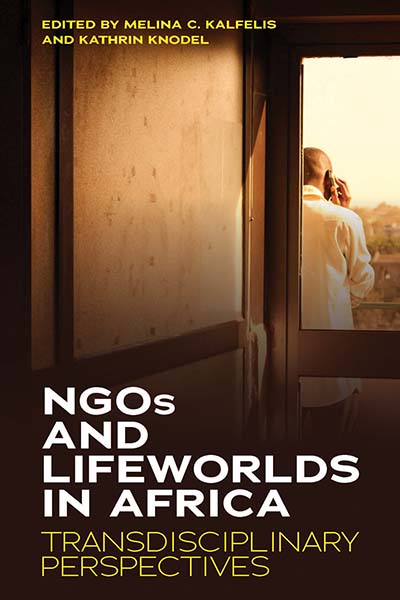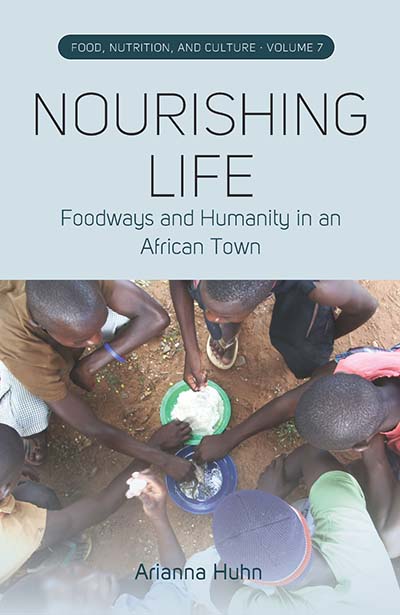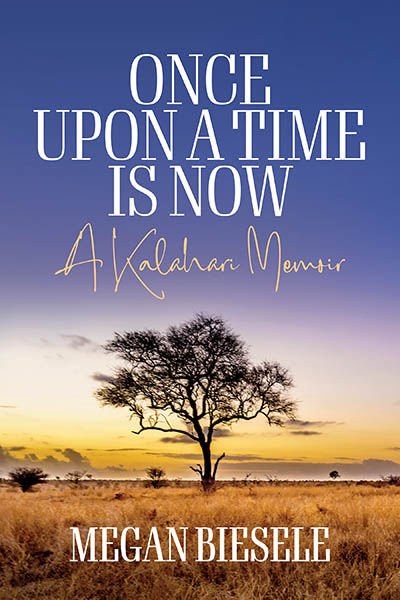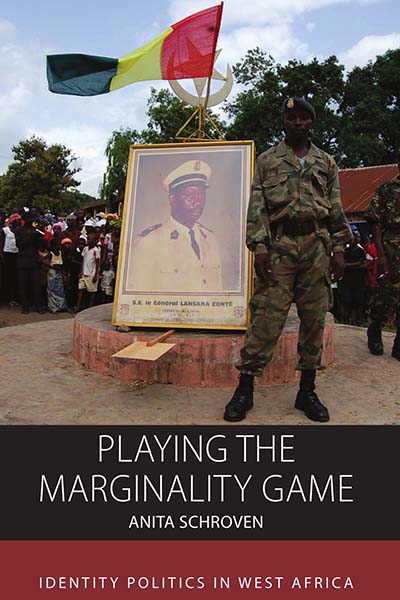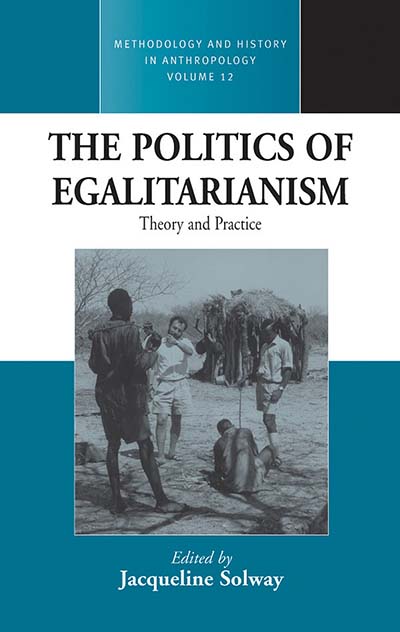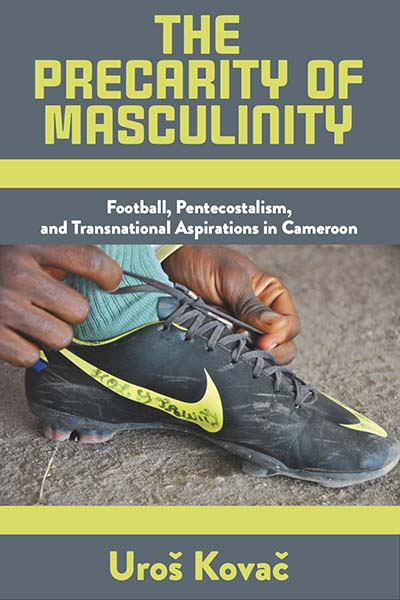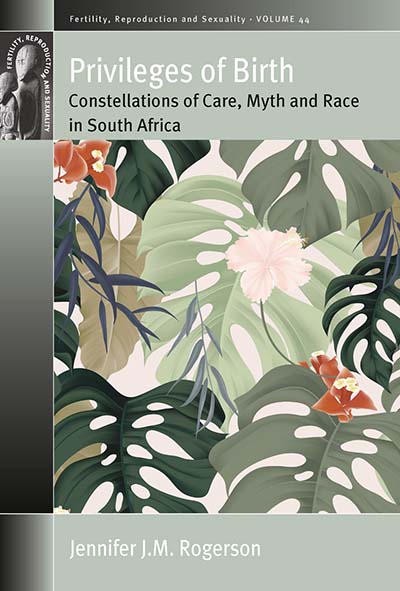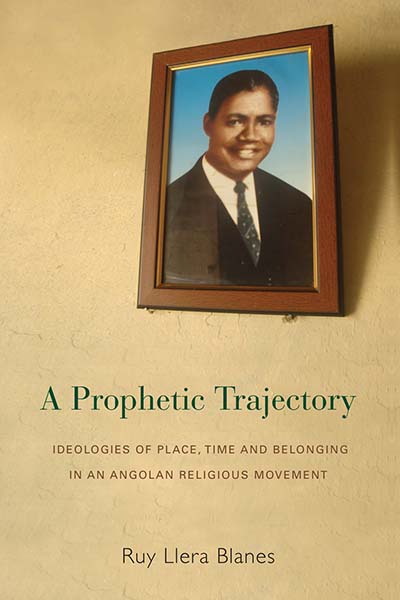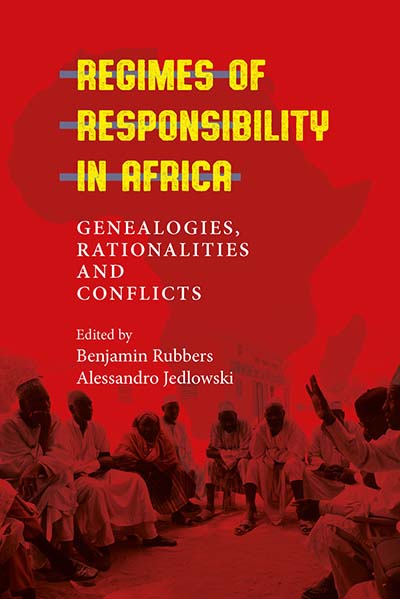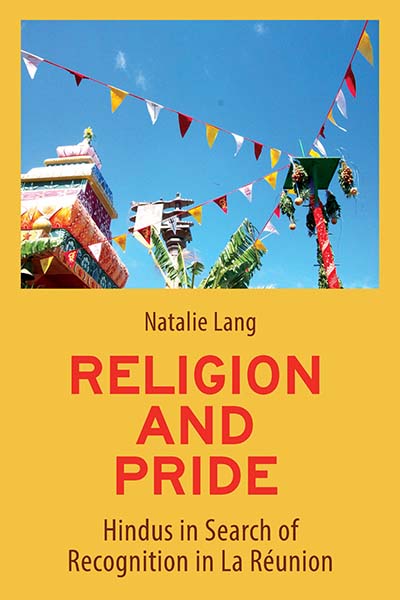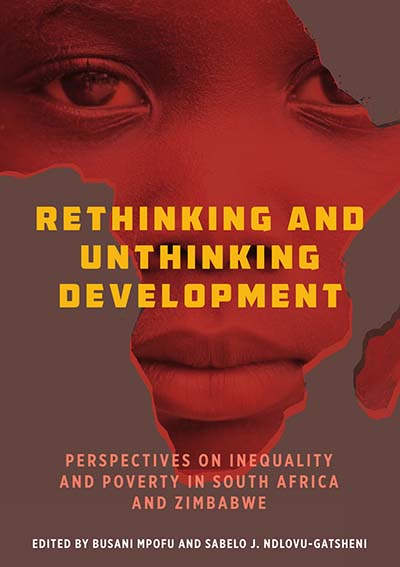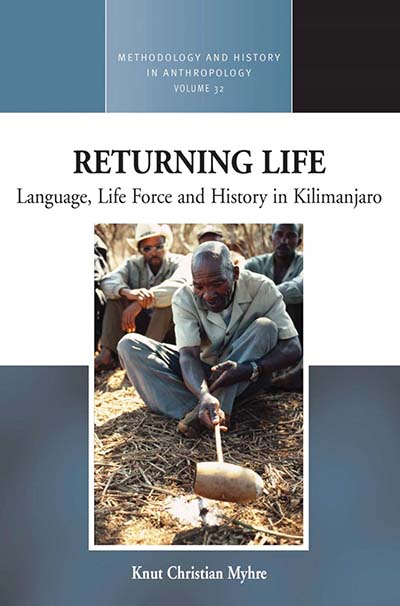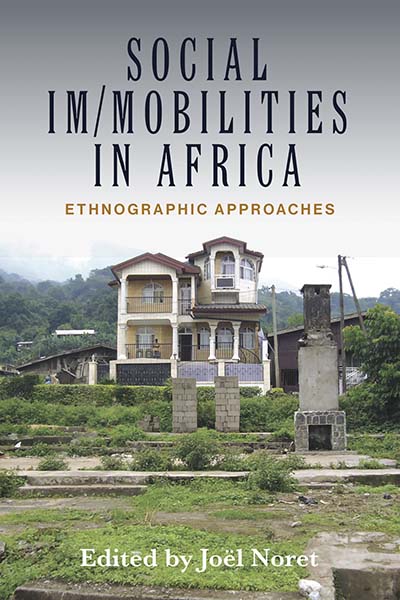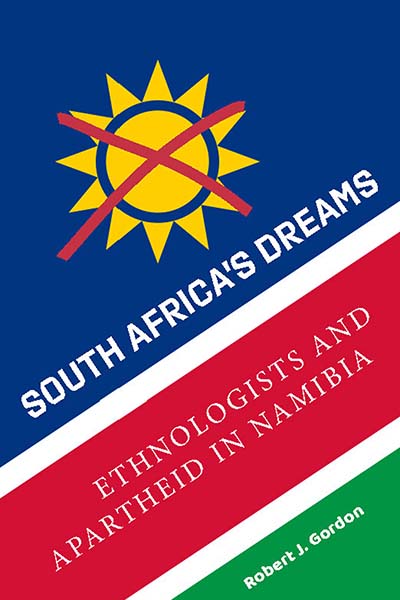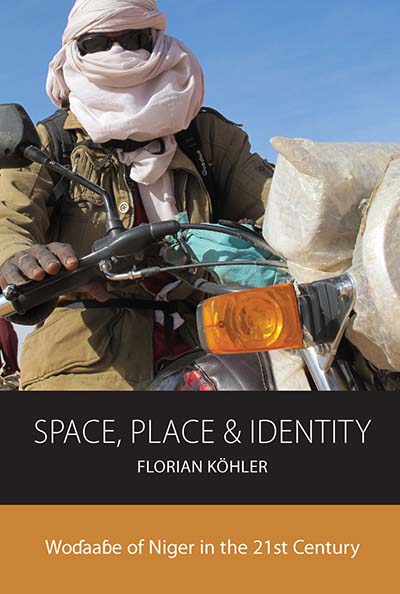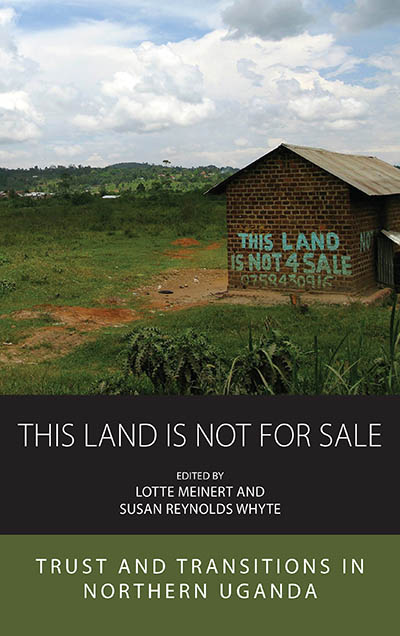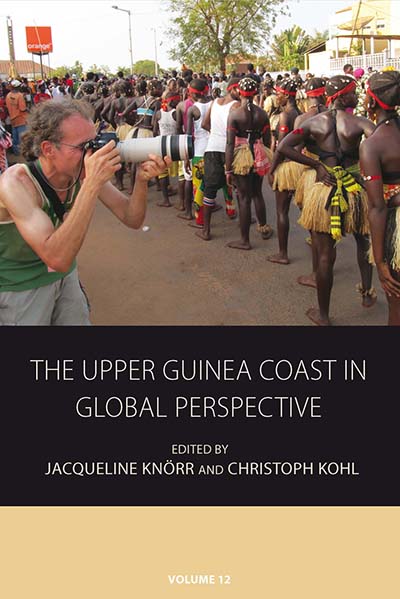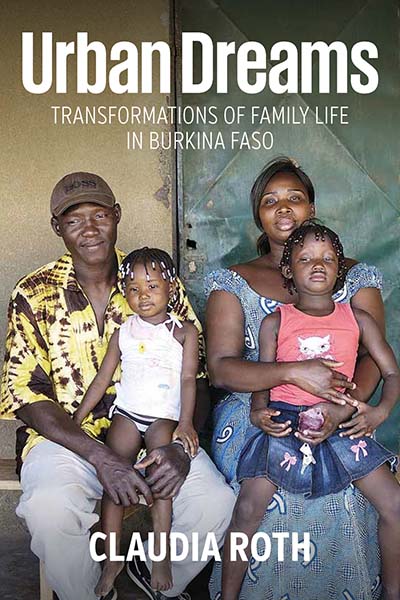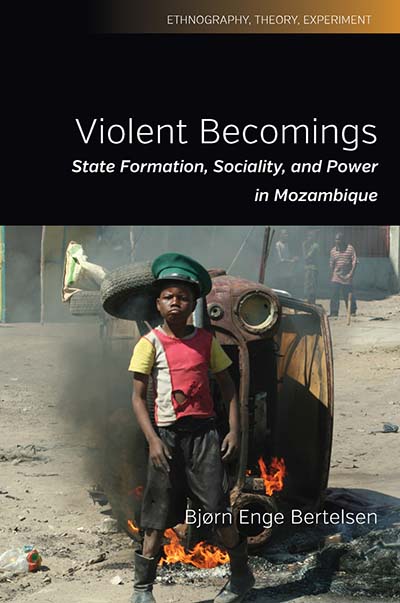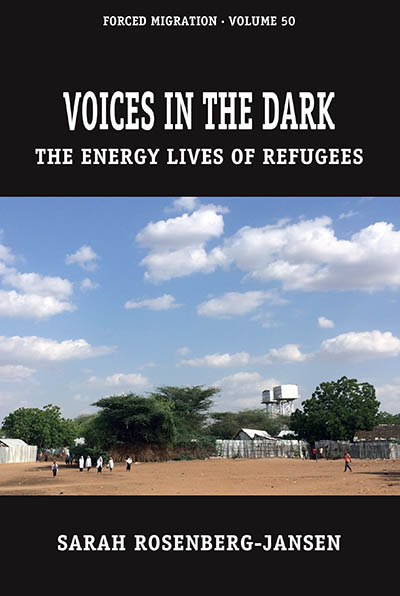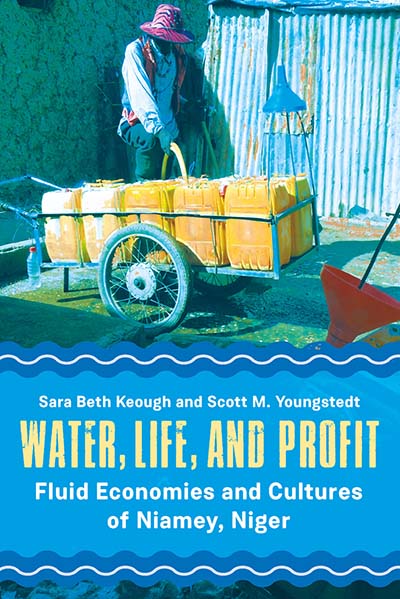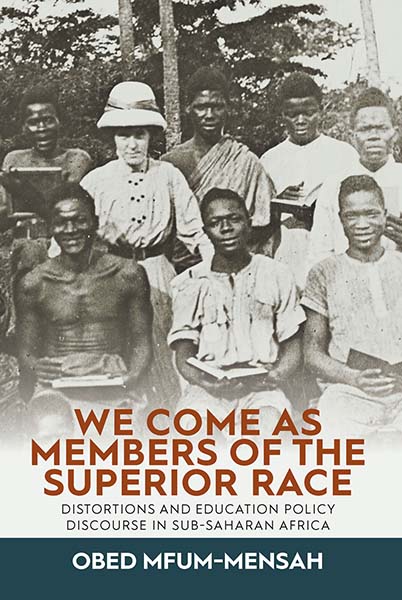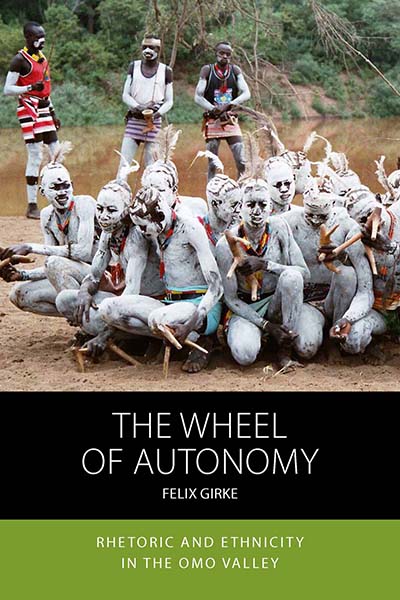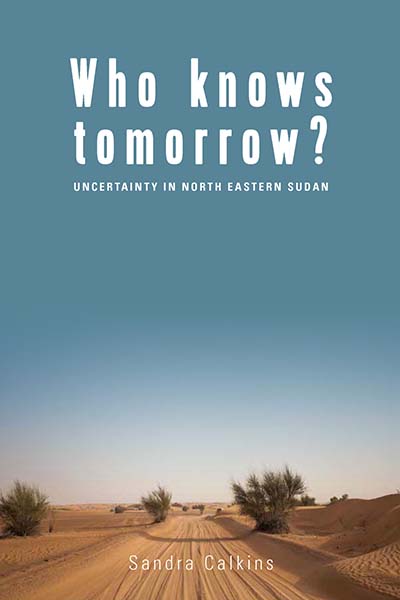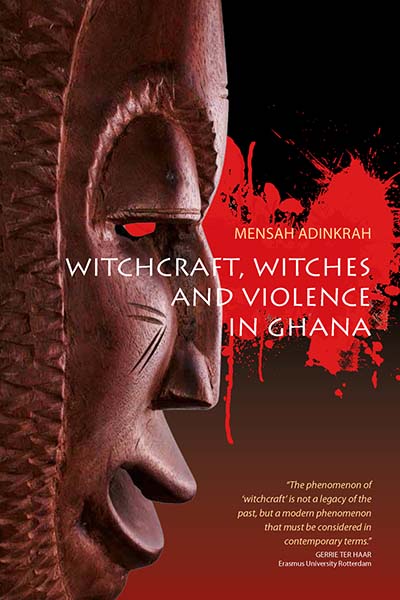Home -> Browse
-

Abortion in Post-revolutionary Tunisia
Politics, Medicine and Morality
Maffi, I.
After the revolution of 2011, the electoral victory of the Islamist party ‘Ennahdha’ allowed previously silenced religious and conservative ideas about women’s right to abortion to be expressed. This also allowed healthcare providers in the public sector to refuse abortion and contraceptive care. This book explores the changes and continuity in the local discourses and practices related to the body, sexuality, reproduction and gender relationships. It also investigates how the bureaucratic apparatus of government healthcare facilities affects the complex moral world of clinicians and patients.
Subjects: Medical Anthropology Gender Studies and Sexuality Political and Economic Anthropology
Area: Africa
-

African Political Systems Revisited
Changing Perspectives on Statehood and Power
Bošković, A. & Schlee, G. (eds)
Reexamining a classical work of social anthropology, African Political Systems (1940), edited by Fortes and Evans-Pritchard, this book looks at the colonial and academic context from which the work arose, as well as its reception and its subject matter, and looks at how the work can help with analysis of current politics in Africa. This book critically reflects upon the history of anthropology. It also contributes to a political anthropology which is aware of its antecedents, self-reflexive as a discipline, conscious of pitfalls and biases, and able to locate itself in its academic, social and political environment.
Subjects: Political and Economic Anthropology Colonial History Development Studies
Area: Africa
-

Afropolitan Horizons
Essays toward a Literary Anthropology of Nigeria
Hannerz, U.
Nigeria is a country shaped by internal diversity and transnational connections, past and present. Leading Nigerian writers from Chinua Achebe, Amos Tutuola and Wole Soyinka to Chimamanda Ngozi Adichie and Teju Cole have portrayed these Nigerian issues, and have also written about some of the momentous events in Nigerian history. Afropolitan Horizons discusses their work alongside other novelists and commentators, as well as describing the ways in which Nigeria has appeared in foreign news reporting. It is all interwoven with the author’s own anthropological field research in a town in Central Nigeria.
Subjects: Anthropology (General) Literary Studies Anthropology of Religion
Area: Africa
-

After Corporate Paternalism
Material Renovation and Social Change in Times of Ruination
Straube, C.
In this ethnographic study of post-paternalist ruination and renovation, Christian Straube explores social change at the intersection of material decay and social disconnection in the former mine township Mpatamatu of Luanshya, one of the oldest mining towns on the Zambian Copperbelt. Touching on topics including industrial history, colonial town planning, social control and materiality, gender relations and neoliberal structural change, After Corporate Paternalism offers unique insights into how people reappropriate former corporate spaces and transform them into personal projects of renovation, fundamentally changing the characteristics of their community.
Subjects: Anthropology (General) Development Studies Sociology
Area: Africa
-

Ambiguous Childhoods
Peer Socialisation, Schooling and Agency in a Zambian Village
Clemensen, N.
Growing up with social and economic upheaval in the peripheries of global neoliberalism, children in rural Zambia are presented with diverging social and moral protocols across homes, classrooms, church halls, and the streets. Mostly unmonitored by adults, they explore the ambiguities of adult life in playful interactions with their siblings and kin across gender and age. Drawing on rich linguistic-ethnographic details of such interactions combined with observations of school and household procedures, the author provides a rare insight into the lives, voices, and learning paths of children in a rural African setting.
Subjects: Anthropology (General) Sociology Development Studies Educational Studies
Area: Africa
-

At Home in the Okavango
White Batswana Narratives of Emplacement and Belonging
Gressier, C.
An ethnographic portrayal of the lives of white citizens of the Okavango Delta, Botswana, this book examines their relationships with the natural and social environments of the region. In response to the insecurity of their position as a European-descended minority in a postcolonial African state, Gressier argues that white Batswana have developed cultural values and practices that have allowed them to attain high levels of belonging. Adventure is common for this frontier community, and the book follows their safari lifestyles as they construct and perform localized identities in their interactions with dangerous wildlife, the broader African community, and the global elite via their work in the nature-tourism industry.
Subject: Anthropology (General)
Area: Africa
-

The Attempt to Stay
Dam Building, Displacement, and Resistance in the Nile Valley, Sudan
Hänsch, V.
The construction of the Merowe Dam along the Nile in northern Sudan flooded local villages and forced thousands of inhabitants to flee to higher ground. Despite the radical social and environmental transformations and an uncertain future, the Manasir have tried to continue their peasant way of life and resisted relocating to state-run resettlement schemes. Rather than focusing on migration and resettlement, the author follows the people’s attempts to preserve their homeland and have meaningful lives along the emerging reservoir. The book grapples with the fundamental question of how to re-establish life in a world that is falling apart.
Subjects: Political and Economic Anthropology Development Studies Environmental Studies (General) Sustainable Development Goals
Area: Africa
-

Beyond the Lens of Conservation
Malagasy and Swiss Imaginations of One Another
Keller, E.
The global agenda of Nature conservation has led to the creation of the Masoala National Park in Madagascar and to an exhibit in its support at a Swiss zoo, the centerpiece of which is a mini-rainforest replica. Does such a cooperation also trigger a connection between ordinary people in these two far-flung places? The study investigates how the Malagasy farmers living at the edge of the park perceive the conservation enterprise and what people in Switzerland see when looking towards Madagascar through the lens of the zoo exhibit. It crystallizes that the stories told in either place have almost nothing in common: one focuses on power and history, the other on morality and progress. Thus, instead of building a bridge, Nature conservation widens the gap between people in the North and the South.
Subjects: Anthropology (General) Environmental Studies (General) Development Studies Political and Economic Anthropology
Areas: Africa Europe
-

Biopolitics, Militarism, and Development
Eritrea in the Twenty-First Century
O'Kane, D. & Hepner, T. R. (eds)
Bringing together original, contemporary ethnographic research on the Northeast African state of Eritrea, this book shows how biopolitics - the state-led deployment of disciplinary technologies on individuals and population groups - is assuming particular forms in the twenty-first century. Once hailed as the “African country that works,” Eritrea’s apparently successful post-independence development has since lapsed into economic crisis and severe human rights violations. This is due not only to the border war with Ethiopia that began in 1998, but is also the result of discernible tendencies in the “high modernist” style of social mobilization for development first adopted by the Eritrean government during the liberation struggle (1961–1991) and later carried into the post-independence era. The contributions to this volume reveal and interpret the links between development and developmentalist ideologies, intensifying militarism, and the controlling and disciplining of human lives and bodies by state institutions, policies, and discourses. Also assessed are the multiple consequences of these policies for the Eritrean people and the ways in which such policies are resisted or subverted. This insightful, comparative volume places the Eritrean case in a broader global and transnational context.
Subjects: Peace and Conflict Studies Development Studies Anthropology (General)
Area: Africa
-

Breaking Rocks
Music, Ideology and Economic Collapse, from Paris to Kinshasa
Trapido, J.
Based on fieldwork in Kinshasa and Paris, Breaking Rocks examines patronage payments within Congolese popular music, where a love song dedication can cost 6,000 dollars and a simple name check can trade for 500 or 600 dollars. Tracing this system of prestige through networks of musicians and patrons – who include gangsters based in Europe, kleptocratic politicians in Congo, and lawless diamond dealers in northern Angola – this book offers insights into ideologies of power and value in central Africa’s troubled post-colonial political economy, as well as a glimpse into the economic flows that make up the hidden side of the globalization.
Subjects: Anthropology (General) Political and Economic Anthropology Cultural Studies (General)
Areas: Africa France
-

Breast Feeding and Sexuality
Behaviour, Beliefs and Taboos among the Gogo Mothers in Tanzania
Mabilia, M.
Whereas in western countries breastfeeding is an uncontroversial, purely personal issue, in most parts of the world mother and baby form part of a network of interpersonal relations with its own rules and expectations. In this study, the author examines the cultural and social context of breastfeeding among the Gogo women of the Cigongwe's village in Tanzania, as part of the Paediatric Programme of Doctors with Africa, based in Padua. The focus is on mothers' behaviour and post partum taboos as key elements in Gogo understanding of the vicissitudes of the breast feeding process. This nutritional period is subject to many different events both physical and social that may upset the natural and intense link between mother and child. Any violation of cultural norms, particularly those dealing with sexual behaviour, marriage and reproduction, can, in the eyes of the Gogo, put at risk the correct development of an infant with serious consequences both for the baby's health as well as for the woman's image as mother and wife.
Subjects: Medical Anthropology Gender Studies and Sexuality
Area: Africa
-

Bush Bound
Young Men and Rural Permanence in Migrant West Africa
Gaibazzi, P.
Whereas most studies of migration focus on movement, this book examines the experience of staying put. It looks at young men living in a Soninke-speaking village in Gambia who, although eager to travel abroad for money and experience, settle as farmers, heads of families, businessmen, civic activists, or, alternatively, as unemployed, demoted youth. Those who stay do so not only because of financial and legal limitations, but also because of pressures to maintain family and social bases in the Gambia valley. ‘Stayers’ thus enable migrants to migrate, while ensuring the activities and values attached to rural life are passed on to the future generations.
Subjects: Anthropology (General) Refugee and Migration Studies
Area: Africa
-

Care in a Time of Humanitarianism
Stories of Refuge, Aid, and Repair in the Global South
Osanloo, A. & deBergh Robinson, C. (eds)
The vast majority of forced migrants & refugees seek shelter and respite in countries of the Global South, where humanitarian spaces and practices of care are no exceptions to international humanitarianism but rather part of a project founded on hybrid forms of care that include local and vernacular practices. Care in a Time of Humanitarianism presents complex histories of forced migration and humanitarianism in an accessible way. It applies a comparative approach to highlight the diverse cultural and religious traditions of care that are adopted across the Global South for the “distant others”.
Subjects: Anthropology (General) Refugee and Migration Studies Sociology
Areas: Asia Africa
-

Cattle Poetics
How Aesthetics Shapes Politics in Mursiland, Ethiopia
Eczet, J.-B.
Loving cows, then killing them. The relation with cattle in Mursi country is shaped by the dichotomy between the value given to it during life and the death imposed upon it. The killing of cattle may be brief and inflicted with few words, but it is preceded by a series of intense aesthetic practices, such as body painting and adornments, colour poetics, poems and oratory art. This book investigates the link between the nurturing and killing of cattle with Mursi daily life and finds that these rituals cut across pastoralism, social organisation and politics in forming the very fabric of Mursi society.
Subjects: Anthropology (General) Cultural Studies (General) Development Studies
Area: Africa
-

Children of the Camp
The Lives of Somali Youth Raised in Kakuma Refugee Camp, Kenya
Grayson, C.-L.
Chronic violence has characterized Somalia for over two decades, forcing nearly two million people to flee. A significant number have settled in camps in neighboring countries, where children were born and raised. Based on in-depth fieldwork, this book explores the experience of Somalis who grew up in Kakuma refugee camp, in Kenya, and are now young adults. This original study carefully considers how young people perceive their living environment and how growing up in exile structures their view of the past and their country of origin, and the future and its possibilities.
Subjects: Refugee and Migration Studies Anthropology (General) Peace and Conflict Studies Sociology
Area: Africa
-

Chinese Medicine in East Africa
An Intimacy with Strangers
Hsu, E.
Based on fieldwork conducted between 2001-2008 in urban East Africa, this book explores who the patients, practitioners and paraprofessionals doing Chinese medicine were in this early period of renewed China-Africa relations. Rather than taking recourse to the ‘placebo effect’, the author explains through the spatialities and materialities of the medical procedures provided why - apart from purchasing the Chinese antimalarial called Artemisinin - locals would try out their ‘alternatively modern’ formulas for treating a wide range of post-colonial disorders and seek their sexual enhancement medicines.
Subject: Medical Anthropology
Area: Africa
-

Colonial Intervention and Destabilization of African Identities
Contours of Trusteeship and Organized Infantilism in Sub-Saharan Africa
Mfum-Mensah, O.
External forces and African elites impose trusteeship practices on Africans to construct and consolidate hierarchical power relations in African societies that infantilize Africans. They employ “trusteeship” and “organized infantilism” as two-pronged colonial intervention tools to keep Africans in subordinated positions by accepting and internalizing those practices as part of the “normal order of things.” This book takes an interdisciplinary approach for examining these different forms of power relations that exploit and dispossess African societies of their resources to accumulate their own wealth.
Subjects: Political and Economic Anthropology Sociology Development Studies
Area: Africa
-

Commerce as Politics
The Two Centuries of Struggle for Basotho Economic Independence
Maliehe, S. M.
This is the first comprehensive economic history of the Basotho people of Southern Africa (in colonial Basutoland, then Lesotho) and spans from the 1820s to the present day. The book documents what the Basotho have done on their own account, focusing on their systematic exclusion from trade and their political efforts to insert themselves into their country’s commerce. Although the colonial and post-colonial periods were unfavourable to the Basotho, they have, before and after colonial rule, launched impressive commercial initiatives of their own, which bring hope for greater development and freedom in their struggle for economic independence.
Subjects: History (General) Political and Economic Anthropology Colonial History
Area: Africa
-

Conflict and Violence in the Lake Chad Basin
Insecurity in Central Africa
Chavin, E., Langlois, O., Seignobos, C., & Baroin, C. (eds)
Ranging from Boko Haram to the war in the Central African Republic, insecurity forms a major factor among societies in the Lake Chad Basin (Cameroon, Central African Republic, Niger, Nigeria, Chad). Marred by conflict and violence, these territories are difficult to access and not well-known, so they tend to be out of reach for scholarly study and development programs. The long-term and in-depth field studies that this volume presents offer a window on conflict analysis based on insights into local dynamics and the lived world of the people themselves.
Subjects: Political and Economic Anthropology Peace and Conflict Studies Sociology
Area: Africa
-

Conservation and Mobile Indigenous Peoples
Displacement, Forced Settlement and Sustainable Development
Chatty, D. & Colchester, M. (eds)
The second edition of this remarkable volume updates the immense advances in policy and soft international law with regards to the rights of mobile indigenous peoples in conservation.
The contributors to this book examine the interface between conservation and indigenous communities who are forced to move or settle elsewhere to accommodate environmental policies and biodiversity concerns. The case studies investigate successful and not so successful community-managed projects in Africa, the Middle East, South and SouthEastern Asia, Australia and Latin America.
Subjects: Refugee and Migration Studies Environmental Studies (General) Development Studies Sustainable Development Goals
Areas: Africa Asia Middle East & Israel
-

Cosmopolitan Refugees
Somali Migrant Women in Nairobi and Johannesburg
Ripero-Muñiz, N.
Exploring the dynamics of identity formation processes in diasporic spaces, this book analyses how gender, cultural and religious practices are renegotiated in a situation of displacement. The author presents the comparative case study of Somali migrant women in Nairobi and Johannesburg: two cosmopolitan urban hubs in the global South. The book is based on and includes ethnographic observations in Nairobi and Johannesburg, first-person accounts of migration journeys across the African continent and women’s reflections on what it means to be a Somali woman today.
Subjects: Refugee and Migration Studies Anthropology (General) Gender Studies and Sexuality
Area: Africa
-

Credit and Debt in an Unequal Society
Establishing a Consumer Credit Market in South Africa
Schraten, J.
South Africa was one of the first countries in the Global South that established a financialized consumer credit market. This market consolidates rather than alleviates the extreme social inequality within a country. This book investigates the political reasons for adopting an allegedly self-regulating market despite its disastrous effects and identifies the colonialist ideas of property rights as a mainstay of the existing social order. The book addresses sociologists, political scientists, anthropologists and legal scholars interested in the interaction of economy and law in contemporary market societies.
Subjects: Political and Economic Anthropology Anthropology (General) Sociology
Area: Africa
-

A Creole Nation
National Integration in Guinea-Bissau
Kohl, C.
Despite high degrees of cultural and ethnic diversity as well as prevailing political instability, Guinea-Bissau’s population has developed a strong sense of national belonging. By examining both contemporary and historical perspectives, A Creole Nation explores how creole identity, culture, and political leaders have influenced postcolonial nation-building processes in Guinea-Bissau, and the ways in which the phenomenon of cultural creolization results in the emergence of new identities.
Subjects: Anthropology (General) Colonial History Political and Economic Anthropology
Area: Africa
-

Crude Domination
An Anthropology of Oil
Behrends, A., Reyna, S. P. & Schlee, G. (eds)
Crude Domination is an innovative and important book about a critical topic – oil. While there have been numerous works about petroleum from ‘experience-far’ perspectives, there have been relatively few that have turned the ‘experience-near’ ethnographic gaze of anthropology on the topic. Crude Domination does just this among more peoples and more places than any other volume. Its chapters investigate nuances of culture, politics and economics in Africa, Latin America, and Eurasia as they pertain to petroleum. They wrestle with the key questions vexing scholars and practitioners alike: problems of the economic blight of the resource curse, underdevelopment, democracy, violence and war. Additionally they address topics that may initially appear insignificant – such as child witches and lionmen, fighting for oil when there is no oil, reindeer nomadism, community TV – but which turn out on closer scrutiny to be vital for explaining conflict and transformation in petro-states. Based upon these rich, new worlds of information, the text formulates a novel, domination approach to the social analysis of oil.
Subjects: Peace and Conflict Studies Anthropology (General)
Areas: Africa Latin America and the Caribbean Central/Eastern Europe
-

Cryptopolitics
Exposure, Concealment, and Digital Media
Bernal, V., Pype, K., & Rodima-Taylor, D. (eds)
Hidden information, double meanings, double-crossing, and the constant processes of encoding and decoding messages have always been important techniques in negotiating social and political power dynamics. Yet these tools, “cryptopolitics,” are transformed when used within digital media. Focusing on African societies, Cryptopolitics brings together empirically grounded studies of digital media toconsider public culture, sociality, and power in all its forms, illustrating the analytical potential of cryptopolitics to elucidate intimate relationships, political protest, and economic strategies in the digital age.
Subjects: Anthropology (General) Media Studies
Area: Africa
-

Cutting and Connecting
'Afrinesian' Perspectives on Networks, Relationality, and Exchange
Myhre, K. C. (ed)
Questions regarding the origins, mobility, and effects of analytical concepts continue to emerge as anthropology endeavors to describe similarities and differences in social life around the world. Cutting and Connecting rethinks this comparative enterprise by calling in a conceptual debt that theoretical innovations from Melanesian anthropology owe to network analysis originally developed in African contexts. On this basis, the contributors adopt and employ concepts from recent studies of Melanesia to analyze contemporary life on the African continent and to explore how this exchange influences the borrowed anthropological perspectives. By focusing on ways in which networks are cut and connections are made, these empirical investigations show how particular relationships are created in today’s Africa. In addition, the volume aims for an approach that recasts relationships between theory and place and concepts and ethnography, in a manner that destabilizes the distinction between fieldwork and writing.
Subjects: Anthropology (General) Cultural Studies (General)
Areas: Africa Asia-Pacific
-

Desert Entanglements
The Making of the Badiya by Sahrawi Refugees of Western Sahara
Volpato, G.
The Sahrawi refugees in southwestern Algeria have struggled from exile for fifty years to reconfigure the animated desert they call badiya. They recovered camel husbandry and access to part of the former rangeland, and wove it back as seasonal nomadism. Desert Entanglements analyzes this process as an act of place-making premised on refugees’ agency.
Subjects: Anthropology (General) Environmental Studies (General) Refugee and Migration Studies Sustainable Development Goals
Area: Africa
-

Developmentality
An Ethnography of the World Bank-Uganda Partnership
Sande Lie, J. H.
Drawing on ethnographic fieldwork within the World Bank and a Ugandan ministry, this book critically examines how the new aid architecture recasts aid relations as a partnership. While intended to alter an asymmetrical relationship by fostering greater recipient participation and ownership, this book demonstrates how donors still seek to retain control through other indirect and informal means. The concept of developmentality shows how the World Bank’s ability to steer a client’s behavior is disguised by the underlying ideas of partnership, ownership, and participation, which come with other instruments through which the Bank manipulates the aid recipient into aligning with its own policies and practices.
Subjects: Development Studies Anthropology (General)
Area: Africa
-

Dynamics of Political Domination in Africa
An Axel Sommerfelt Collection
Sommerfelt, A., (au) Sommerfelt, T., Jakoubek, M., & Eriksen, T. H. (eds)
Axel Sommerfelt has been an important influence on Norwegian and Scandinavian anthropology, but his contributions are almost unknown. This book brings together some of his critical writings, newly written articles and an interview which positions him in the history of ‘North Sea’ social anthropology and shows his continued relevance. An Africanist, Sommerfelt did research in Ruwenzori (Uganda and Belgian Congo), but also wrote about the Tallensi (Ghana) and worked for years in Salisbury (Harare) before being evicted by Ian Smith's racist regime in 1966. His contributions to political anthropology, methodology and legal anthropology have a lasting value.
Subjects: Theory and Methodology Anthropology (General)
Area: Africa
-

Fierce Medicines, Fragile Socialities
Grounding Global HIV Treatment in Tanzania
Mattes, D.
Set in Tanga, a city on the Tanzanian Swahili coast, Dominik Mattes examines the implementation of antiretroviral HIV-treatment (ART) in the area, exploring the manifold infrastructural and social fragilities of treatment provision in public HIV clinics as well as patients’ multi-layered struggles of coming to terms with ART in their everyday lives. Based on extensive ethnographic fieldwork, the book shows that, notwithstanding the massive rollout of ART, providing treatment and living a life with HIV in settings like Tanga continue to entail social, economic, and moral challenges and long-term uncertainties, which contradict the global rhetoric of the “normalization of HIV”.
Subjects: Medical Anthropology Development Studies Sustainable Development Goals
Area: Africa
-

Food and Families in the Making
Knowledge Reproduction and Political Economy of Cooking in Morocco
Graf, K.
Even in the context of rapid material and social change in urban Morocco, women, and especially those from low-income households, continue to invest a lot of work in preparing good food for their families. Through the lens of domestic food preparation, this book looks at knowledge reproduction, how we know cooking and its role in the making of everyday family life. It also examines a political economy of cooking that situates Marrakchi women’s lived experiences in the broader context of persisting poverty and food insecurity in Morocco.
Subjects: Food & Nutrition Anthropology (General) Cultural Studies (General)
Area: Africa
-

Food Connections
Production, Exchange and Consumption in West African Migration
Abranches, M.
Food Connections follows the movement of food from its production sites in West Africa to its final spaces of consumption in Europe. It is an ethnographic study of economic and social life amongst a close-knit community of food producers, traders and consumers and a wide range of small intermediaries that operate in Guinea-Bissau and Portugal. By investigating the way meanings of food and land are embedded in everyday experiences and relationships in the various phases of the movement, on both sides of the migration, it reveals the connections that transnational processes of food production, exchange and consumption generate between two lifeworlds.
Subjects: Food & Nutrition Anthropology (General) Refugee and Migration Studies
Area: Africa
-

Foucault's Orient
The Conundrum of Cultural Difference, From Tunisia to Japan
Lazreg, M.
Foucault lived in Tunisia for two years and travelled to Japan and Iran more than once. Yet throughout his critical scholarship, he insisted that the cultures of the “Orient” constitute the “limit” of Western rationality. Using archival research supplemented by interviews with key scholars in Tunisia, Japan and France, this book examines the philosophical sources, evolution as well as contradictions of Foucault’s experience with non-Western cultures. Beyond tracing Foucault’s journey into the world of otherness, the book reveals the personal, political as well as methodological effects of a radical conception of cultural difference that extolled the local over the cosmopolitan.
Subjects: Sociology Anthropology (General) Cultural Studies (General)
Areas: Asia-Pacific Africa
-

Fragile Futures
Ambiguities of Care in Burkina Faso
Samuelsen, H.
Caring for small children and the family in Burkina Faso is hard work. Although the health infrastructure in Burkina Faso is weak and many citizens feel neglected by the state, Fragile Futures shows that the state continues to play an important role in people’s engagements and hopes for a better future. Based on more than twenty years of research engagement with Burkina Faso, it is an ethnography of how rural citizens address ambiguities of sickness and care and try to secure a decent future for themselves and their families.
Subjects: Anthropology (General) Medical Anthropology Development Studies Sustainable Development Goals
Area: Africa
-

The Franco-Mauritian Elite
Power and Anxiety in the Face of Change
Salverda, T.
Mauritian independence in 1968 marked the end of a regime favorable to the Franco-Mauritians, the island’s white colonial elite. Now, in postcolonial Mauritius, this group is faced with a much more diverse power constellation and often feels in competition with others vying for their privileges. Though this is a clear departure from the colonial heydays, Franco-Mauritians have been able to continue their elite position into the early twenty-first century. This book focuses on the power of white elites still lingering on in postcolonial realities, and with regards to elites and power in general, addresses anew how an elite group aims to prolong its position over time.
Subjects: Anthropology (General) Development Studies
Area: Africa
-

Friendship, Descent and Alliance in Africa
Anthropological Perspectives
Guichard, M., Grätz, T., & Diallo, Y. (eds)
Friendship, descent and alliance are basic forms of relatedness that have received unequal attention in social anthropology. Offering new insights into the ways in which friendship is conceptualized and realized in various sub-Saharan African settings, the contributions to this volume depart from the recent tendency to study friendship in isolation from kinship. In drawing attention to the complexity of the interactions between these two kinds of social relationships, the book suggests that analyses of friendship in Western societies would also benefit from research that explores more systematically friendship in conjunction with kinship.
Subject: Anthropology (General)
Area: Africa
-

From Bullies to Officers and Gentlemen
How Notions of Professionalism and Civility Transformed the Ghana Armed Forces
Agyekum, H. A.
Based on unprecedented access to the Ghanaian military barracks and inspired by the recent resurgence of coups in West Africa, Agyekum assesses why and how the Ghana Armed Forces were transformed from an organization that actively orchestrated coups into an institution that accepts the authority of the democratically elected civilian government. Focusing on the process of professionalization of the Ghanaian military, this ethnography based monograph examines both historical and contemporary themes, and assesses the shift in military personnel from ‘Buga Buga’ soldiers – uneducated, lower-class soldiers, human rights abusers – to a more ‘modern’ fighting force.
Subjects: Peace and Conflict Studies Applied Anthropology
Area: Africa
-

Going to Pentecost
An Experimental Approach to Studies in Pentecostalism
Eriksen, A. Blanes, R. L., MacCarthy, M.
Co-authored by three anthropologists with long–term expertise studying Pentecostalism in Vanuatu, Angola, and Papua New Guinea/the Trobriand Islands respectively, Going to Pentecost offers a comparative study of Pentecostalism in Africa and Melanesia, focusing on key issues as economy, urban sociality, and healing. More than an ordinary comparative book, it recognizes the changing nature of religion in the contemporary world – in particular the emergence of “non-territorial” religion (which is no longer specific to places or cultures) – and represents an experimental approach to the study of global religious movements in general and Pentecostalism in particular.
Subjects: Anthropology (General) Anthropology of Religion
Areas: Africa Asia-Pacific
-

The Good Holiday
Development, Tourism and the Politics of Benevolence in Mozambique
Baptista, J. A.
Drawing on ethnographic research in the village of Canhane, which is host to the first community tourism project in Mozambique, The Good Holiday explores the confluence of two powerful industries: tourism and development, and explains when, how and why tourism becomes development and development, tourism. The volume further explores the social and material consequences of this merging, presenting the confluence of tourism and development as a major vehicle for the exercise of ethics, and non-state governance in contemporary life.
Subjects: Anthropology (General) Development Studies Travel and Tourism
Area: Africa
-

Healing Roots
Anthropology in Life and Medicine
Laplante, J.
Umhlonyane, also known as Artemisia afra, is one of the oldest and best-documented indigenous medicines in South Africa. This bush, which grows wild throughout the sub-Saharan region, smells and tastes like “medicine,” thus easily making its way into people’s lives and becoming the choice of everyday healing for Xhosa healer-diviners and Rastafarian herbalists. This “natural” remedy has recently sparked curiosity as scientists search for new molecules against a tuberculosis pandemic while hoping to recognize indigenous medicine. Laplante follows umhlonyane on its trails and trials of becoming a biopharmaceutical — from the “open air” to controlled environments — learning from the plant and from the people who use it with hopes in healing.
Subject: Medical Anthropology
Area: Africa
-

In-Betweenness in Greater Khartoum
Spaces, Temporalities, and Identities from Separation to Revolution
Franck, A., Casciarri, B., & Salim El-Hassan, I. (eds)
Focusing on Greater Khartoum following South Sudanese independence in 2011, In-Betweenness in Greater Khartoum explores the impact on society of major political events in areas that are neither urban nor rural, public nor private. This volume uses these in-between spaces as a lens to analyze how these events, in combination with other processes, such as globalization and economic neo-liberalization, impact communities across the region. Drawing on original fieldwork and empirical data, the authors uncover the reshaping of new categories of people that reinforce old dichotomies and in doing so underscore a common Sudanese identity.
Subjects: Urban Studies Peace and Conflict Studies
Area: Africa
-

Integrating Strangers
Sherbro Identity and The Politics of Reciprocity along the Sierra Leonean Coast
Ménard, A.
Drawing on an ethnography of Sherbro coastal communities in Sierra Leone, this book analyses the politics and practice of identity through the lens of the reciprocal relations that exist between socio-ethnic groups. Anaïs Ménard examines the implications of the social arrangement that binds landlords and strangers in a frontier region, the Freetown Peninsula, characterized by high degrees of individual mobility and social interactions. She showcases the processes by which Sherbro identity emerged as a flexible category of practice, allowing individuals the possibility to claim multiple origins and perform ethnic crossovers while remaining Sherbro.
Subjects: Anthropology (General) Political and Economic Anthropology Development Studies
Area: Africa
-

Kinship and Beyond
The Genealogical Model Reconsidered
Bamford, S. & Leach, J. (eds)
The genealogical model has a long-standing history in Western thought. The contributors to this volume consider the ways in which assumptions about the genealogical model—in particular, ideas concerning sequence, essence, and transmission—structure other modes of practice and knowledge-making in domains well beyond what is normally labeled “kinship.” The detailed ethnographic work and analysis included in this text explores how these assumptions have been built into our understandings of race, personhood, ethnicity, property relations, and the relationship between human beings and non-human species. The authors explore the influences of the genealogical model of kinship in wider social theory and examine anthropology’s ability to provide a unique framework capable of bridging the “social” and “natural” sciences. In doing so, this volume brings fresh new perspectives to bear on contemporary theories concerning biotechnology and its effect upon social life.
Subject: Medical Anthropology
Areas: Asia-Pacific Africa
-

Lands of the Future
Anthropological Perspectives on Pastoralism, Land Deals and Tropes of Modernity in Eastern Africa
Gabbert, E. C., Gebresenbet, F., Galaty, J. G., & Schlee, G. (eds)
Rangeland, forests and riverine landscapes of pastoral communities in Eastern Africa are increasingly under threat. Abetted by states who think that outsiders can better use the lands than the people who have lived there for centuries, outside commercial interests have displaced indigenous dwellers from pastoral territories. This volume presents case studies from Eastern Africa, based on long-term field research, that vividly illustrate the struggles and strategies of those who face dispossession and also discredit ideological false modernist tropes like ‘backwardness’ and ‘primitiveness’.
Subjects: Environmental Studies (General) Development Studies Mobility Studies Sustainable Development Goals
Area: Africa
-

Lessons from Kalahari Ju/’hoan Culture
Democracy, Childrearing, Education, and Community
Heckler, M.
Juǀ’hoansi have occupied the Kalahari Desert in Namibia, Africa for at least 35,000 years and possess the oldest human DNA. Their traditional educational practices are the oldest curricula human beings have. Juǀ’hoan collective decision-making processes epitomize direct, participatory democracy: one person/one vote, enhanced by in-depth negotiations that lead to consensus. These practices are the basis for their education and culture. For Juǀ’hoansi, child autonomy is paramount and for democracy to thrive, children require independence to make decisions through play-exploration to experience multiple possible outcomes. This book explores how this egalitarian culture became the foundation of an enduring democracy.
Subjects: Anthropology (General) Cultural Studies (General)
Area: Africa
-

Life as a Hunt
Thresholds of Identities and Illusions on an African Landscape
Marks, S. A.
The "extensive wilderness" of Zambia’s central Luangwa Valley is the homeland of the Valley Bisa whose cultural practices have enriched this environment for centuries. Beginning with the intrusions of warlords and later British colonials, successive generations have experienced the callousness and challenges of colonialism. Their homeland, a slender corridor surrounded by three national parks and an escarpment, is a microcosm of the political, economic and cultural battlefields surrounding most African protected areas today. The story of the Valley Bisa diverges from the myths that conservationists, administrators, and philanthropists, tell about Africa’s environmental and wildlife crises.
Subjects: Anthropology (General) Environmental Studies (General)
Area: Africa
-

Making Ubumwe
Power, State and Camps in Rwanda's Unity-Building Project
Purdeková, A.
Since the end of the Rwandan genocide, the new political elite has been challenged with building a unified nation. Reaching beyond the better-studied topics of post-conflict justice and memory, the book investigates the project of civic education, the upsurge of state-led neo-traditional institutions and activities, and the use of camps and retreats shape the “ideal” Rwandan citizen. Rwanda’s ingando camps offer unique insights into the uses of dislocation and liminality in an attempt to anchor identities and desired political roles, to practically orient and symbolically place individuals in the new Rwandan order, and, ultimately, to create additional platforms for the reproduction of political power itself.
Subjects: Anthropology (General) Refugee and Migration Studies Development Studies
Area: Africa
-

Masks and Staffs
Identity Politics in the Cameroon Grassfields
Pelican, Michaela
The Cameroon Grassfields, home to three ethnic groups – Grassfields societies, Mbororo, and Hausa – provide a valuable case study for the anthropological examination of identity politics and interethnic relations. In the midst of the political liberalization of Cameroon in the late 1990s and 2000s, local responses to political and legal changes took the form of a series of performative and discursive expressions of ethnicity. Confrontational encounters stimulated by economic and political rivalry, as well as socially integrative processes, transformed collective self-understanding in Cameroon in conjunction with recent global discourses on human, minority, and indigenous rights. The book provides a vital contribution to the study of ethnicity, conflict, and social change in the anthropology of Africa.
Subject: Anthropology (General)
Area: Africa
-

Max Gluckman
Macmillan, H.
This handy, concise biography describes the life and intellectual contribution of Max Gluckman (1911-75) who was one the most significant social anthropologists of the twentieth century.
Max Gluckman was the founder in the 1950s of the Manchester School of Social Anthropology. He did fieldwork among the Zulu of South Africa in the 1930s and the Lozi of Northern Rhodesia/Zambia in the 1940s. This book describes in detail his academic career and the lasting influence of his Analysis of A Social Situation in Modern Zululand (1940-42) and of his two large monographs on the legal system of the Lozi.
From the Introduction:
Max Gluckman was the most influential of a group of social anthropologists who emerged from South Africa during the 1930s into what was essentially a new academic discipline. His description and analysis of events in real time implied a rejection of contemporary social anthropological practice, of the ‘ethnographic present’, and of hypothetical or conjectural reconstructions and an acceptance of the need to study ‘primitive’ societies in the context of the modern world.Subjects: Anthropology (General) Theory and Methodology
Areas: Africa Northern Europe
-

Media Practices and Changing African Socialities
Non-media-centric Perspectives
Helle-Valle, J. & Strom-Mathiesen, A. (eds)
Deriving from innovative new work by six researchers, this book questions what the new media's role is in contemporary Africa. The chapters are diverse - covering different areas of sociality in different countries - but they unite in their methodological and analytical foundation. The focus is on media-related practices, which require engagement with different perspectives and concerns while situating these in a wider analytical context. The contributions to this collection provide fresh ethnographic descriptions of how new media practices can affect socialities in significant but unpredictable ways.
Subjects: Media Studies Anthropology (General) Development Studies
Area: Africa
-

Medicinal Rule
A Historical Anthropology of Kingship in East and Central Africa
Stroeken, K.
As soon as Europeans set foot on African soil, they looked for the equivalents of their kings – and found them. The resulting misunderstandings have lasted until this day. Based on ethnography-driven regional comparison and a critical re-examination of classic monographs on some forty cultural groups, this volume makes the arresting claim that across equatorial Africa the model of rule has been medicine – and not the colonizer’s despotic administrator, the missionary’s divine king, or Vansina’s big man. In a wide area populated by speakers of Bantu and other languages of the Niger-Congo cluster, both cult and dynastic clan draw on the fertility shrine, rainmaking charm and drum they inherit.
Subjects: Anthropology (General) Colonial History
Area: Africa
-

Mobile Urbanity
Somali Presence in Urban East Africa
Carrier, N. & Scharrer, T. (eds)
The increased presence of Somalis has brought much change to East African towns and cities in recent decades, change that has met with ambivalence and suspicion, especially within Kenya. This volume demystifies Somali residence and mobility in urban East Africa, showing its historical depth, and exploring the social, cultural and political underpinnings of Somali-led urban transformation. In so doing, it offers a vivid case study of the transformative power of (forced) migration on urban centres, and the intertwining of urbanity and mobility. The volume will be of interest for readers working in the broader field of migration, as well as anthropology and urban studies.
Subjects: Refugee and Migration Studies Anthropology (General) Urban Studies
Area: Africa
-

Morality and Economic Growth in Rural West Africa
Indigenous Accumulation in Hausaland
Clough, P.
The land, labor, credit, and trading institutions of Marmara village, in Hausaland, northern Nigeria, are detailed in this study through fieldwork conducted in two national economic cycles - the petroleum-boom prosperity (in 1977-1979), and the macro-economic decline (in 1985, 1996 and 1998). The book unveils a new paradigm of economic change in the West African savannah, demonstrating how rural accumulation in a polygynous society actually limits the extent of inequality while at the same time promoting technical change. A uniquely African non-capitalist trajectory of accumulation subordinates the acquisition of capital to the expansion of polygynous families, clientage networks, and circles of trading friends. The whole trajectory is driven by an indigenous ethics of personal responsibility. This model disputes the validity of both Marxian theories of capitalist transformation in Africa and the New Institutional Economics.
Subject: Anthropology (General)
Area: Africa
-

Multidimensional Change in Sudan (1989–2011)
Reshaping Livelihoods, Conflicts and Identities
Casciarri, B., Assal, M.A.M. & Ireton, F. (eds)
Based on fieldwork largely collected during the CPA interim period by Sudanese and European researchers, this volume sheds light on the dynamics of change and the relationship between microscale and macroscale processes which took place in Sudan between the 1980s and the independence of South Sudan in 2011. Contributors’ various disciplinary approaches—socio-anthropological, geographical, political, historical, linguistic—focus on the general issue of “access to resources.” The book analyzes major transformations which affected Sudan in the framework of globalization, including land and urban issues; water management; “new” actors and “new conflicts”; and language, identity, and ideology.
Subjects: Anthropology (General) Development Studies
Area: Africa
-

Muted Memories
Heritage-Making, Bagamoyo, and the East African Caravan Trade
Lindström, J.
In the late nineteenth century, tens of thousands of porters carried ivory every year from the African interior to Bagamoyo, a port town at the Indian Ocean. In the opposite direction, they carried millions of meters of cloth, manufactured in the USA, Europe, and India. This book examines the centrality of the caravan trade, both culturally and economically, to Bagamoyo’s development and cosmopolitan character, while also exploring how this history was silenced when Bagamoyo was instead branded as a slave route town in 2006 in an attempt to qualify it for the UNESCO World Heritage List.
Subjects: Anthropology (General) Heritage Studies Development Studies
Area: Africa
-

The Myth of Self-Reliance
Economic Lives Inside a Liberian Refugee Camp
Omata, N.
For many refugees, economic survival in refugee camps is extraordinarily difficult. Drawing on both qualitative and quantitative research , this volume challenges the reputation of a ‘self-reliant’ model given to Buduburam refugee camp in Ghana and sheds light on considerable economic inequality between refugee households.By following the same refugee households over several years, The Myth of Self-Reliance also provides valuable insights into refugees’ experiences of repatriation to Liberia after protracted exile and their responses to the ending of refugee status for remaining refugees in Ghana.
Subjects: Refugee and Migration Studies Anthropology (General)
Area: Africa
-

Navigating Terrains of War
Youth and Soldiering in Guinea-Bissau
Vigh, H.
Through the concept of "social navigation," this book sheds light on the mobilization of urban youth in West Africa. Social navigation offers a perspective on praxis in situations of conflict and turmoil. It provides insights into the interplay between objective structures and subjective agency, thus enabling us to make sense of the opportunistic, sometimes fatalistic and tactical ways in which young people struggle to expand the horizons of possibility in a world of conflict, turmoil and diminishing resources.
Subject: Anthropology (General)
Area: Africa
-

A New African Elite
Place in the Making of a Bridge Generation
Pellow, D.
Focusing on a sub-set of the Dagomba of northern Ghana, this book looks at the first generation to go through secondary school in the north. After university and post-graduate education, they relocate to Accra, the capital, hundreds of miles south. They crossed social and physical space and have become cosmopolitan while holding on to tradition and attachment to their home town. This bridge generation are patrons to those living up north. This book charts their path into elite status and argues that they use the tools gained through education and social connections to influence politics back home.
Subjects: Anthropology (General) Mobility Studies Development Studies
Area: Africa
-

NGOs and Lifeworlds in Africa
Transdisciplinary Perspectives
Kalfelis, M. C. & Knodel, K. (eds)
Non-governmental organizations (NGOs) have become ubiquitous in the development sector in Africa and attracting more academic attention. However, the fact that NGOs are an integral part of the everyday lives of men and women on the continent has been overlooked thus far. In Africa, NGOs are not remote, but familiar players, situated in the midst of cities and communities. By taking a radical empirical stance, this book studies NGOs as a vital part of the lifeworlds of Africans. Its contributions are immersed in the pasts, presents and futures of personal encounters, memories, decision-making and politics.
Subjects: Development Studies Anthropology (General)
Area: Africa
-

Nourishing Life
Foodways and Humanity in an African Town
Huhn, A.
In this accessible ethnography of a small town in northern Mozambique, everyday cultural knowledge and behaviors about food, cooking, and eating reveal the deeply human pursuit of a nourishing life. This emerges less through the consumption of specific nutrients than it does in the affective experience of alimentation in contexts that support vitality, compassion, and generative relations. Embedded within central themes in the study of Africa south of the Sahara, the volume combines insights from philosophy and food studies to find textured layers of meaning in a seemingly simple cuisine.
Subjects: Food & Nutrition Anthropology (General) Cultural Studies (General)
Area: Africa
-

Of Life and Health
The Language of Art and Religion in an African Medical System
Tengan, A. B.
An anthropological study of the health system of the Dagara people of northern Ghana and southern Burkina Faso, Of Life and Health develops a cultural and epistemological lexicon of Dagara life by examining its religious, ritual, and artistic expressions. Consisting of ethnographic descriptions and analyses of six Dagara cultic institutions, each of which deals with different aspects of sustaining and transmitting life, the volume gives a holistic account of the Dagara knowledge system.
Subjects: Anthropology (General) Anthropology of Religion Medical Anthropology
Area: Africa
-

Once Upon a Time is Now
A Kalahari Memoir
Biesele, M.
Fifty years after her first fieldwork with Ju/'hoan San hunter-gatherers, anthropologist Megan Biesele has written this exceptional memoir based on personal journals she wrote at the time.
The treasure trove of vivid learning experiences and nightly ponderings she found has led to a memoir of rare value to anthropology students and academics as well as to general readers. Her experiences focus on the long-lived healing dance, known to many as the trance dance, and the intricate beliefs, artistry, and social system that support it.
She describes her immersion in a creative community enlivened and kept healthy by that dance, which she calls "one of the great intellectual achievements of humankind."
From the Preface:
A few years ago I finally got around to looking back into the box of personal field journals I had not opened for over forty years. I found a treasure trove. It was an overwhelming experience. So much that I had forgotten came vividly alive: I laughed, wept, and was terrified all over again at my temerity in taking on what I had taken on. To do justice to the richness of these notebooks, I realized, I would have to do a completely different sort of writing from anything I had ever done before.Subjects: Anthropology (General) Cultural Studies (General) Development Studies
Area: Africa
-

Peaceful Selves
Personhood, Nationhood, and the Post-Conflict Moment in Rwanda
Eramian, L.
This ethnography of personhood in post-genocide Rwanda investigates how residents of a small town grapple with what kinds of persons they ought to become in the wake of violence. Based on fieldwork carried out over the course of a decade, it uncovers how conflicting moral demands emerge from the 1994 genocide, from cultural contradictions around “good” personhood, and from both state and popular visions for the future. What emerges is a profound dissonance in town residents’ selfhood. While they strive to be agents of change who can catalyze a new era of modern Rwandan nationhood, they are also devastated by the genocide and struggle to recover a sense of selfhood and belonging in the absence of kin, friends, and neighbors. In drawing out the contradictions at the heart of self-making and social life in contemporary Rwanda, this book asserts a novel argument about the ordinary lives caught in global post-conflict imperatives to remember and to forget, to mourn and to prosper.
Subjects: Anthropology (General) Peace and Conflict Studies
Area: Africa
-

Playing the Marginality Game
Identity Politics in West Africa
Schroven, A.
In Guinea, situated against the background of central government struggles, rural elites use identity politics through contemporary political reforms to maintain their privileges and perpetuate a generations-old local social contract that bridges ethnic and religious divides. Simultaneously, administrative reform and national unrest lead to the creative re-combination of sources of authority and practices of legitimate rule. Past periods of colonization, socialism and authoritarian regime are reflected in contemporary struggles to make sense of participatory democracy and the future of the embattled Guinean national state.
Subjects: Anthropology (General) Sociology Development Studies
Area: Africa
-

The Politics of Egalitarianism
Theory and Practice
Solway, J. (ed)
The essays assembled in this book exemplify the way political anthropologists address a range of problems that deeply affect people throughout the world. The authors draw their inspiration from the work of Canadian anthropologist Richard B. Lee, and, like him, they are concerned with understanding and acting upon issues of “indigenous rights”; the impact of colonialism, postcolonial state formation, and neoliberalism on local communities and cultures; the process of culture change; what the history and politics of egalitarian societies reveal about issues of “human nature” or “social evolution”; and how peoples in southern Africa are affected by and responding to the most recent crisis in their midst, the spread of AIDS. The authors in this volume discuss the state of a range of contemporary debates in the field that in various ways extend the political, theoretical, and empirical issues that have animated Lee's work. In addition, the book provides readers with important contemporary Kalahari studies, as well as “classic” works on foraging societies.
Subjects: Theory and Methodology Medical Anthropology
Area: Africa
-

The Precarity of Masculinity
Football, Pentecostalism, and Transnational Aspirations in Cameroon
Kovač, U.
Since the 1990s, an increasing number of young men in Cameroon have aspired to play football as a career and a strategy to migrate abroad. Migration through the sport promises fulfillment of masculine dreams of sports stardom, as well as opportunities to earn a living that have been hollowed out by the country’s long economic stalemate. The aspiring footballers are increasingly turning to Pentecostal Christianity, which allows them to challenge common tropes of young men as stubborn and promiscuous, while also offering a moral and bodily regime that promises success despite the odds. Yet the transnational sports market is tough and unpredictable: it demands disciplined young bodies and introduces new forms of uncertainty. This book unpacks young Cameroonians' football dreams, Pentecostal faith, obligations to provide, and desires to migrate to highlight the precarity of masculinity in structurally adjusted Africa and neoliberal capitalism.
Subjects: Anthropology (General) Anthropology of Religion Gender Studies and Sexuality
Area: Africa
-

Privileges of Birth
Constellations of Care, Myth, and Race in South Africa
Rogerson, J. J. M.
Focussing ethnographically on private-sector maternity care in South Africa, Privileges of Birth looks at the ways healthcare and childbirth are shaped by South Africa’s racialised history. Birth is one of the most medicalised aspects of the lifecycle across all sectors of society, and there is deep division between what the privileged can afford compared with the rest of the population. Examining the ethics of care in midwife-attended birth, the author situates the argument in the context of a growing literature on care in anthropological and feminist scholarship, offering a unique account of birthing care in the context of elite care services.
Subject: Medical Anthropology Sustainable Development Goals
Area: Africa
-

A Prophetic Trajectory
Ideologies of Place, Time and Belonging in an Angolan Religious Movement
Blanes, R. L.
Combining ethnographic and historical research conducted in Angola, Portugal, and the United Kingdom, A Prophetic Trajectory tells the story of Simão Toko, the founder and leader of one of the most important contemporary Angolan religious movements. The book explains the historical, ethnic, spiritual, and identity transformations observed within the movement, and debates the politics of remembrance and heritage left behind after Toko’s passing in 1984. Ultimately, it questions the categories of prophetism and charisma, as well as the intersections between mobility, memory, and belonging in the Atlantic Lusophone sphere.
Subjects: Anthropology of Religion Anthropology (General)
Area: Africa
-

Regimes of Responsibility in Africa
Genealogies, Rationalities and Conflicts
Rubbers, B. & Jedlowski, A. (eds)
Regimes of Responsibility in Africa analyses the transformations that discourses and practices of responsibility have undergone in Africa. By doing so, this collection develops a stronger grasp of the specific political, economic and social transformations taking place today in Africa. At the same time, while focusing on case studies from the African continent, the work enters into a dialogue with the emerging corpus of studies in the field of ethics, adding to it a set of analytical perspectives that can help further enlarge its theoretical and geographical scope.
Subjects: Political and Economic Anthropology Anthropology (General)
Area: Africa
-

Religion and Pride
Hindus in Search of Recognition in La Réunion
Lang, N.
Seeking recognition presents an important driving force in the making of religious minorities, as is shown in this study that examines current debates on religion, globalization, diaspora, and secularism through the lens of Hindus living in the French overseas department of La Réunion. Through the examination of religious practices and public performance, the author offers a compelling study of how the Hindus of the island assert pride in their religion as a means of gaining recognition, self-esteem, and social status.
Subjects: Anthropology of Religion Anthropology (General)
Area: Africa
-

Rethinking and Unthinking Development
Perspectives on Inequality and Poverty in South Africa and Zimbabwe
Mpofu, B. & Ndlovu-Gatsheni, S. J. (eds)
Development has remained elusive in Africa. Through theoretical contributions and case studies focusing on Southern Africa’s former white settler states, South Africa and Zimbabwe, this volume responds to the current need to rethink (and unthink) development in the region. The authors explore how Africa can adapt Western development models suited to its political, economic, social and cultural circumstances, while rejecting development practices and discourses based on exploitative capitalist and colonial tendencies. Beyond the legacies of colonialism, the volume also explores other factors impacting development, including regional politics, corruption, poor policies on empowerment and indigenization, and socio-economic and cultural barriers.
Subjects: Development Studies Political and Economic Anthropology Sustainable Development Goals
Area: Africa
-

Returning Life
Language, Life Force and History in Kilimanjaro
Myhre, K. C.
A group of Chagga-speaking men descend the slopes of Mount Kilimanjaro to butcher animals and pour milk, beer, and blood on the ground, requesting rain for their continued existence. Returning Life explores how this event engages activities where life force is transferred and transformed to afford and affect beings of different kinds. Historical sources demonstrate how the phenomenon of life force encompasses coffee cash-cropping, Catholic Christianity, and colonial and post-colonial rule, and features in cognate languages from throughout the area. As this vivid ethnography explores how life projects through beings of different kinds, it brings to life concepts and practices that extend through time and space, transcending established analytics.
Subjects: Anthropology (General) Cultural Studies (General) Sociology
Area: Africa
-

Seekers and Things
Spiritual Movements and Aesthetic Difference in Kinshasa
Lambertz, P.
Focusing on the intricate presence of a Japanese new religion (Sekai Kyûseikyô) in the densely populated and primarily Christian environment of Kinshasa (DR Congo), this ethnographic study offers a practitioner-orientated perspective to create a localized picture of religious globalization. Guided by an aesthetic approach to religion, the study moves beyond a focus limited to text and offers insights into the role of religious objects, spiritual technologies and aesthetic repertoires in the production and politics of difference. The boundaries between non-Christian religious minorities and the largely Christian public sphere involve fears and suspicion of "magic" and "occult sciences".
Subjects: Anthropology (General) Anthropology of Religion Refugee and Migration Studies
Area: Africa
-

Social Im/mobilities in Africa
Ethnographic Approaches
Noret, J. (ed)
Grounded in both theory and ethnography, this volume insists on taking social positionality seriously when accounting for Africa’s current age of polarizing wealth. To this end, the book advocates a multidimensional view of African societies, in which social positions consist of a variety of intersecting social powers - or ‘capitals’ – including wealth, education, social relationships, religion, ethnicity, and others. Accordingly, the notion of social im/mobilities emphasizes the complexities of current changes, taking us beyond the prism of a one-dimensional social ladder, for social moves cannot always be apprehended through the binaries of ‘gains’ and ‘losses’.
Subjects: Mobility Studies Anthropology (General) Sociology
Area: Africa
-

South Africa's Dreams
Ethnologists and Apartheid in Namibia
Gordon, R. J.
In the early sixties, South Africa’s colonial policies in Namibia served as a testing ground for many key features of its repressive ‘Grand Apartheid’ infrastructure, including strategies for countering anti-apartheid resistance. Exposing the role that anthropologists played, this book analyses how the knowledge used to justify and implement apartheid was created. Understanding these practices and the ways in which South Africa’s experiences in Namibia influenced later policy at home is also critically evaluated, as is the matter of adjudicating the many South African anthropologists who supported the regime.
Subjects: Anthropology (General) Colonial History Peace and Conflict Studies
Area: Africa
-

Space, Place and Identity
Wodaabe of Niger in the 21st Century
Köhler, F.
Known as highly mobile cattle nomads, the Wodaabe in Niger are today increasingly engaged in a transformation process towards a more diversified livelihood based primarily on agro-pastoralism and urban work migration. This book examines recent transformations in spatial patterns, notably in the context of urban migration and in processes of sedentarization in rural proto-villages. The book analyses the consequences that the recent change entails for social group formation and collective identification, and how this impacts integration into wider society amid the structures of the modern nation state.
Subjects: Mobility Studies Urban Studies Anthropology (General) Peace and Conflict Studies
Area: Africa
-

This Land Is Not For Sale
Trust and Transitions in Northern Uganda
Meinert, L. & Reynolds Whyte, S. (eds)
Although violent conflict has declined in northern Uganda, tensions and mistrust concerning land have increased. Residents try to deal with acquisitions by investors and exclusions from forests and wildlife reserves. Land wrangles among neighbours and relatives are widespread. The growing commodification of land challenges ideals of entrustment for future generations. Using extended case studies, collaborating researchers analyze the principles and practices that shape access to land. Contributors examine the multiplicity of land claims, the nature of transactions and the management of conflicts. They show how access to land is governed through intimate relations of gender, generation and belonging.
Subjects: Political and Economic Anthropology Development Studies Sociology
Area: Africa
-

Traveling Models and Practical Norms
The Misadventures of Social Engineering in Africa and Beyond
Olivier de Sardan, J.-P.
Public policies, development projects, and NGO interventions often have large gaps between the planning and execution. Standardized public policies, especially development ones, ignore the multiple contexts in which they are implemented. Local actors (those targeted by public policies or responsible for implementing them) play a major role in the implementation of planning and execution. Their many strategies for circumventing official directives and protocols follow implicit "practical norms" that are ignored by international experts. This book examines how different modes of governance that deliver services of general interest experience significant gaps between explicit rules and implicit practices, between planned actions and daily routines, in Africa and beyond.
Subjects: Political and Economic Anthropology Development Studies
Area: Africa
-

The Upper Guinea Coast in Global Perspective
Knörr, J. & Kohl, C. (eds)
For centuries, Africa’s Upper Guinea Coast region has been the site of regional and global interactions, with societies from different parts of the African continent and beyond engaging in economic trade, cultural exchange and various forms of conflict. This book provides a wide-ranging look at how such encounters have continued into the present day, identifying the disruptions and continuities in religion, language, economics and various other social phenomena. These accounts show a region that, while still grappling with the legacies of colonialism and the slave trade, is both shaped by and an important actor within ever-denser global networks, exhibiting consistent transformation and creative adaptation.
Subjects: Anthropology (General) Environmental Studies (General) History (General) Colonial History
Area: Africa
-

Urban Dreams
Transformations of Family Life in Burkina Faso
Roth, C.
de Jong, W., Perlik, M., Steuer, N., & Znoj, H. (eds)Claudia Roth's work on Bobo-Dioulasso, a city of half a million residents in Burkina Faso, provides uniquely detailed insight into the evolving life-world of a West African urban population in one of the poorest countries in the world. Closely documenting the livelihood strategies of members of various neighbourhoods, Roth’s work calls into question established notions of “the African family” as a solidary network, documents changing marriage and kinship relations under the impact of a persistent economic crisis, and explores the increasingly precarious social status of young women and men.
Subjects: Anthropology (General) Sociology Urban Studies
Area: Africa
-

Violent Becomings
State Formation, Sociality, and Power in Mozambique
Bertelsen, B. E.
Violent Becomings conceptualizes the Mozambican state not as the bureaucratically ordered polity of the nation-state, but as a continuously emergent and violently challenged mode of ordering. In doing so, this book addresses the question of why colonial and postcolonial state formation has involved violent articulations with so-called ‘traditional’ forms of sociality. The scope and dynamic nature of such violent becomings is explored through an array of contexts that include colonial regimes of forced labor and pacification, liberation war struggles and civil war, the social engineering of the post-independence state, and the popular appropriation of sovereign violence in riots and lynchings.
Subjects: Anthropology (General) Peace and Conflict Studies Colonial History
Area: Africa
-

Voices in the Dark
The Energy Lives of Refugees
Rosenberg-Jansen, S.
Humanitarianism is in crisis: refugee numbers increase every year and humanitarian agencies are struggling to meet the needs of displaced people. In refugee camps all over the world, refugees are forced to secure their own access to energy and are provided with limited cooking resources and minimal electricity. Voices in the Dark draws upon a decade of original research to provide evidence on the energy lives of refugees. Focusing on refugee camps in Rwanda and Kenya, the book identifies that urgent change is required within humanitarian responses to forced migration and the climate crisis to ensure that future energy provision in displacement settings is sustainable, reliable and affordable for refugees.
Subjects: Refugee and Migration Studies Political and Economic Anthropology Sustainable Development Goals
Area: Africa
-

Water, Life, and Profit
Fluid Economies and Cultures of Niamey, Niger
Keough, S. B. & Youngstedt, S. M
Water, Life, and Profit offers a holistic analysis of the people, economies, cultural symbolism, and material culture involved in the management, production, distribution, and consumption of drinking water in the urban context of Niamey, Niger. Paying particular attention to two key groups of people who provide water to most of Niamey’s residents - door-to-door water vendors, and those who sell water in one-half-liter plastic bags (sachets) on the street or in small shops – the authors offer new insights into how Niamey’s water economies affect gender, ethnicity, class, and spatial structure today.
Subjects: Anthropology (General) Environmental Studies (General) Political and Economic Anthropology Sustainable Development Goals
Area: Africa
-

We Come as Members of the Superior Race
Distortions and Education Policy Discourse in Sub-Saharan Africa
Mfum-Mensah, O.
Westerners have long represented Africans as “backwards,” “primitive,” and “unintelligent,” distortions which have opened the door for American philanthropies to push their own education agendas in Africa. We Come as Members of the Superior Race discusses the origin and history of these dangerous stereotypes and western “infantilization” of African societies, exploring how their legacy continues to inform contemporary educational and development discourses. By viewing African societies as subordinated in a global geopolitical order, these problematic stereotypes continue to influence education policy and research in Sub-Sahara Africa today.
Subjects: Educational Studies Development Studies Sociology Sustainable Development Goals
Area: Africa
-

The Wheel of Autonomy
Rhetoric and Ethnicity in the Omo Valley
Girke, F.
How do the Kara, a small population residing on the eastern bank of the Omo River in southern Ethiopia, manage to be neither annexed nor exterminated by any of the larger groups that surround them? Through the theoretical lens of rhetoric, this book offers an interactionalist analysis of how the Kara negotiate ethnic and non-ethnic differences among themselves, the relations with their various neighbors, and eventually their integration in the Ethiopian state. The model of the “Wheel of Autonomy” captures the interplay of distinction, agency and autonomy that drives these dynamics and offers an innovative perspective on social relations.
Subjects: Anthropology (General) Cultural Studies (General)
Area: Africa
-

Who Knows Tomorrow?
Uncertainty in North-Eastern Sudan
Calkins, S.
Although uncertainty is intertwined with all human activity, plans, and aspirations, it is experienced differently: at times it is obsessed over and at times it is ignored. This ethnography shows how Rashaida in north-eastern Sudan deal with unknowns from day-to-day unpredictability to life-threatening dangers. It argues that the amplification of uncertainty in some cases and its extenuation in others can be better understood by focusing on forms that can either hold the world together or invite doubt. Uncertainty, then, need not be seen solely as a debilitating problem, but also as an opportunity to create other futures.
Subjects: Anthropology (General) Development Studies
Area: Africa
-

Witchcraft, Witches, and Violence in Ghana
Adinkrah, M.
Witchcraft violence is a feature of many contemporary African societies. In Ghana, belief in witchcraft and the malignant activities of putative witches is prevalent. Purported witches are blamed for all manner of adversities including inexplicable illnesses and untimely deaths. As in other historical periods and other societies, in contemporary Ghana, alleged witches are typically female, elderly, poor, and marginalized. Childhood socialization in homes and schools, exposure to mass media, and other institutional mechanisms ensure that witchcraft beliefs are transmitted across generations and entrenched over time. This book provides a detailed account of Ghanaian witchcraft beliefs and practices and their role in fueling violent attacks on alleged witches by aggrieved individuals and vigilante groups.
Subjects: Anthropology (General) Anthropology of Religion Gender Studies and Sexuality
Area: Africa
-

Wrestling with Hope in Urban Senegal
Sports, Masculinity, and Precarious Trajectories
Hann, M.
In Dakar, thousands of young men train daily on beaches, football pitches and sandy courtyards in pursuit of athletic success. Aspiring football players seek contracts in the lucrative leagues of the Global North, while hopeful wrestlers aim to captivate massive crowds as members of Senegal's beloved national sport. Despite their differences – (European) football's global appeal versus wrestling's traditional roots – both sports demand immense effort and come with high social costs. Wrestling with Hope in Urban Senegal follows the journeys of these precarious athletes as they confront the realities of their aspirations, grappling with themes of masculinity, belief systems and economic survival whilst navigating the complexities of a neoliberal landscape.
Subjects: Anthropology (General) Sociology Development Studies Urban Studies
Area: Africa


